






Fodictiumqui aut entis andae asimuss

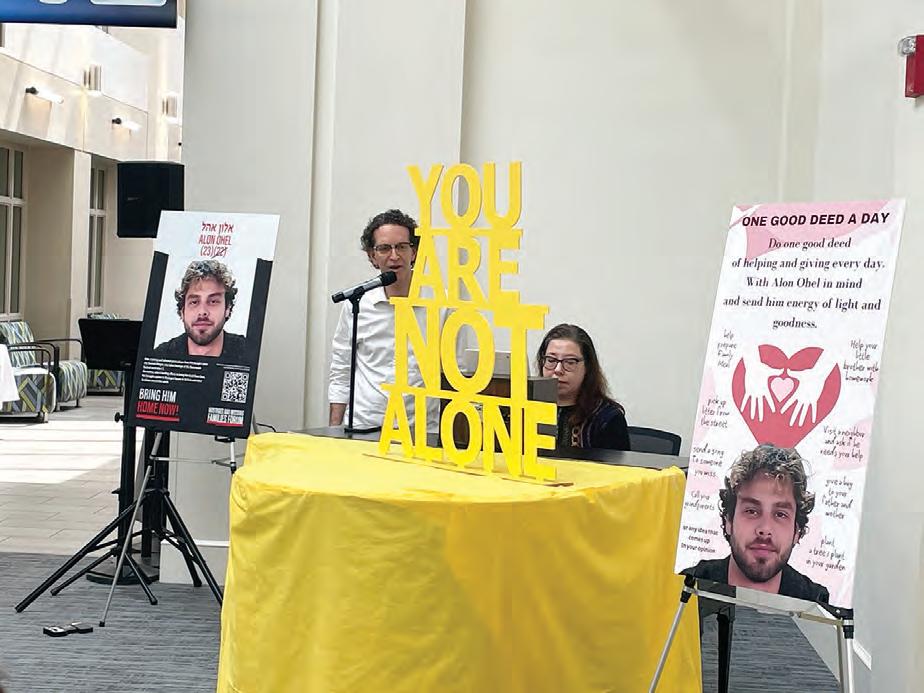
By Abigail Hakas | Special to the Chronicle

As “Adon Olam” echoed through the Jewish Community Center in Squirrel Hill, many in the audience joined in a quiet chorus, slowly growing louder and more confident as the live performance progressed. Others sat in a reverent silence.
The selection was one of many played on Aug. 25 during a concert dedicated to those taken hostage by Hamas on Oct. 7 — particularly Alon Ohel, a gifted pianist from Pittsburgh’s Partnership2Gether sister community of Misgav in Israel. Ohel was abducted from the Nova music festival where Hamas terrorists killed hundreds of young concertgoers, and raped and kidnapped others.
Idit Ohel, Alon Ohel’s mother, spoke in a pre-recorded video about the day he was taken hostage. She recalled the moment she
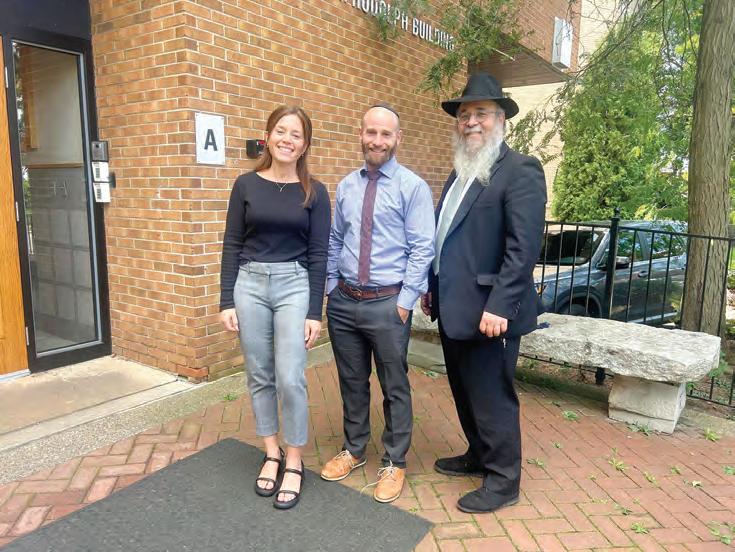
and her family were told Alon Ohel was abducted. Her entire family stared at her and waited for her to respond. She took a deep breath and said “OK, so we have to fight.”
“I know from that second that I am not going to be in my bed crying,” she said. “I cannot control what is going on with Alon, obviously, but I can control to what house, to what home, he will come back to, and he will come to a strong, healthy, loved and safe home.”
Idit Ohel’s strength inspired those on the Jewish Federation of Greater Pittsburgh’s solidarity trip to Israel in June. Karen Gal-Or and Marjorie Manne, along with the other members of the trip, met her then.
Alon Ohel’s family have not heard from him since he was abducted, but Idit Ohel feels confident her son is still alive. She and her
By Adam Reinherz | Senior Sta Writer
very Pittsburgh thing is happening at Pittsburgh’s Jewish day schools: With Casey Weiss taking the helm of Community Day School this year, each of the city’s three day schools is now headed by one of its alumni. The fact that the principals were once local students isn’t surprising — becoming an educator requires being educated. More so, across the U.S., the majority of young adults live in their hometowns, according to researchers and census data. But perhaps the most Pittsburghy feature among Pittsburgh’s day school leaders is less their choice of residence than how they describe their responsibilities and mutual admiration. Three institutions, three alumni, one purpose
see Day Schools, page 16


By David Rullo | Senior Sta Writer
When Israel’s war with Hamas began in October, Yehudis Hoffman and her husband, Nathan Hoffman, knew that they wanted to do something to help.
Nathan Hoffman is the chief executive officer at the Galilee Culinary Institute by the Jewish National Fund, “a culinary institution that combines culinary and restaurant expertise, tourism and entrepreneurship,” according to the organization’s website.
The couple decided to work within their wheelhouse to provide two Shabbat meals for Israel Defense Forces reservists who were existing on a steady diet of tuna.
The Hoffmans’ mission, which began modestly, blossomed to preparing more than 1,000 kosher-certified meals weekly for IDF members in the Galilee region, Kyrat Shmona, the Chermon and bases around Tzfat.
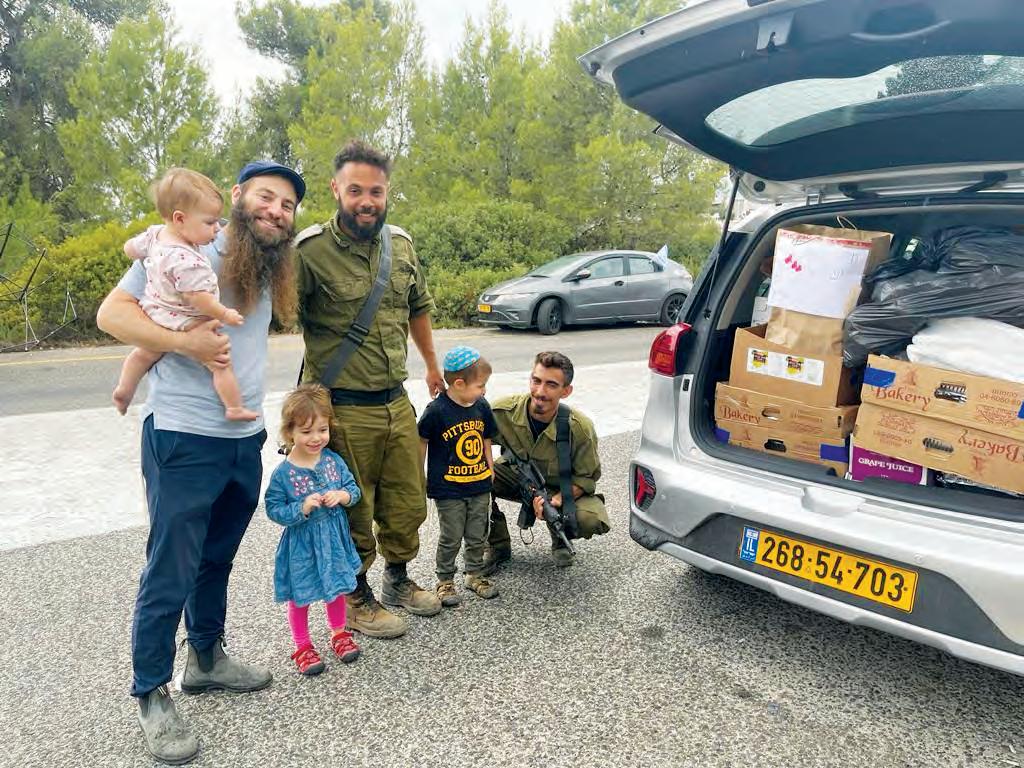
Much of the effort falls on the shoulders of Yehudis Hoffman, who, in addition to raising three children with another due soon, coordinates volunteers and community members from the family’s home.
When the Hoffmans began their work, the effort was expected to continue for approximately five months. As the war enters its 11th month, the pair continues to supply meals, to the price tag of $7,000 to $8,000 a week.
The meal train created by the Hoffmans extends all the way to Pittsburgh, where Yehudis Hoffman grew up. She is the daughter of Rabbi Yosef Silverman and the sister of Rabbi Shlomo Silverman, director of Chabad of Carnegie Mellon University.
Her grandmother, Marlene Silverman, said that wanting to assist during a time of need isn’t new for her granddaughter.
“From the time she was a little girl, she was always helping and doing for others,” Silverman said. “It’s just her nature.”
The family, Silverman noted, are ardent Zionists. Yehudis Hoffman and one of her brothers made Aliyah.
director of Friendship Circle in Agoura Hills, California, before moving to New York, where she met her husband.
Silverman said that in typical fashion, her granddaughter saw a need and responded.
“It’s amazing how much of an impact one person can make on so many people.”
–RABBI SHLOMO SILVERMAN
Hoffman saw what the soldiers were eating, she decided the choices were unacceptable and almost single-handedly started the meal program.
The cooking continues to be done in the Hoffmans’ kitchen, utilizing their noncommercial oven, and they now work with a team of volunteers.
“She couldn’t possibly do it all by herself,” Silverman said. “There are helpers and there are volunteers to deliver the food.”
To that end, the Hoffmans are also looking for help covering the costs of the meals.
JNF has created a page where people can support their work.
“They didn’t anticipate this going on as long as it has,” Silverman said. “The money is running out.”
The Hoffmans hope to raise $200,000. So far, they are at about 40% of their goal, having raised a little more than $83,000.
Rabbi Shlomo Silverman said that his sister is doing “an incredible job.”
“It’s amazing how much of an impact one person can make on so many people,” he said.
That pride is felt by the entire family. Yehudis Hoffman’s uncle, David Silverman, said he’s proud of his niece and her husband for taking on the project.
“These meals undoubtedly give our beloved Israeli troops a homey feeling, which they so deserve,” he said.
Seeing Yehudis Hoffman’s work has been heartwarming for Marlene Silverman.
“I was a president of the Pittsburgh chapter of Hadassah,” Silverman said. “I was on the Partnership2Gether for years. We love Israel so much. I’ve been there over 30 times.”
That love of both Israel and service to the Jewish community was passed onto Yehudis Hoffman, who was a program
“The first week of the war they made peanut butter and jelly sandwiches and took them to an army base with her kids who helped deliver them,” Silverman said. “The second week, I think they made schnitzel.”
The family matriarch said when Yehudis

SUBSCRIPTIONS
subscriptions@pittsburghjewishchronicle.org 412-687-1000, ext. 2
TO ADVERTISE
advertising@pittsburghjewishchronicle.org 412-687-1000, ext. 1
EDITORIAL DEPARTMENT
Email: newsdesk@pittsburghjewishchronicle.org
BOARD OF TRUSTEES
Evan H. Stein, Board Chair
Derek Smith, Treasurer
Gayle R. Kraut, Secretary
Evan Indianer, Immediate Past Chair
Gail Childs, Dan Droz, Malke Steinfeld Frank, Seth Glick, Tammy Hepps, Judith Kanal, Cátia Kossovsky, Charles Saul
GENERAL COUNSEL
Stuart R. Kaplan, Esq.
Jim Busis, CEO and Publisher 412-228-4690 jbusis@pittsburghjewishchronicle.org
EDITORIAL
Toby Tabachnick, Editor 412-228-4577 ttabachnick@pittsburghjewishchronicle.org
Jarrad Saffren, Contributing Editor
Adam Reinherz, Senior Staff Writer 412-687-1000 areinherz@pittsburghjewishchronicle.org
David Rullo, Senior Staff Writer 412-687-1000 drullo@pittsburghjewishchronicle.org
ADVERTISING
Amy Weiss, Account Executive (412) 613-0697 aweiss@pittsburghjewishchronicle.org
PRODUCTION
“It makes me so proud of her and the person she turned out to be,” she said. “She’s an amazing granddaughter. She’s great, and she’s going to keep doing this until the war is over.”
For more information, go to my.jnf.org/ gci/shabbatforsoldiers. PJC
David Rullo can be reached at drullo@ pittsburghjewishchronicle.org.
Main phone number: 412-687-1000 Subscriptions: 412-687-1000, ext. 2
Jeni Mann Tough Production Manager Carl Weigel Art/Production Coordinator Subscriptions subscriptions@pittsburghjewishchronicle.org 412-687-1000, ext. 2
Published every Friday by the Pittsburgh Jewish Publication and Education Foundation 5915 Beacon St., 5th Floor Pittsburgh, PA 15217 Phone: 412-687-1000
POSTMASTER:
Send address change to PITTSBURGH JEWISH CHRONICLE, 5915 BEACON ST., 5TH FLOOR PITTSBURGH, PA 15217 (PERIODICAL RATE POSTAGE PAID AT PITTSBURGH, PA, AND AT ADDITIONAL MAILING OFFICES) USPS 582-740

Manuscripts, letters, documents and photographs sent to the Pittsburgh Jewish Chronicle become the property of this publication, which is not responsible for the return or loss of such items.
The Pittsburgh Jewish Chronicle does not endorse
advertisers and of ad copy is subject to the publisher’s approval. The Pittsburgh Jewish Chronicle is not responsible if ads violate applicable laws and the advertiser will indemnify, hold harmless and defend the Pittsburgh Jewish Chronicle from all claims made by governmental agencies and consumers for any reason based on ads appearing in the Pittsburgh Jewish Chronicle
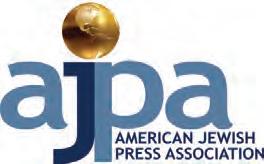

Join us for a meaningful and uplifting Season of Hope as we celebrate the High Holidays together. From special services to community gatherings, there's something for everyone to re ect, renew and reconnect.
Tuesday, September 3, 5:30-7:30 pm • JCC Squirrel Hill
Join the 10.27 Healing Partnership and the JCC for a program to center and ground ourselves before the High Holidays.
By Eric Lidji | Special to the Chronicle
When it comes to Jewish history, Pittsburgh was once further west than cities far to the west of it. To understand this riddle, you have to think of “west” in two ways. The first is a geographic designation: West is the land of the setting sun. The second is a state of mind: West is the perpetual American frontier, an open space waiting for the future.
If you rank American cities by their first synagogue, you find that Pittsburgh (1848) followed Buffalo (1847), Chicago (1846), Cleveland (1842), St. Louis (1841), Louisville (1836), and Cincinnati (1824), as well as many southern cities. Fort Wayne (1848), Wheeling (1849), Detroit (1850), and Milwaukee (1850) all nipped at our heels.
We tend to think of American expansion as a gradual push from the coasts. In Jewish history, westward expansion proceeded stepwise to the Allegheny Mountains, jumped to Ohio and points beyond, and then doubled back to Western Pennsylvania.
The general explanation for this lag in Jewish activity is economic. Already industrialized by the mid-1820s, Pittsburgh eventually had more supply than demand. It needed to export, but seasonal obstructions in the Ohio River limited trade to the west and improved transportation corridors from the east bypassed Western Pennsylvania.
Pittsburgh also struggled to attract economic activity from back east. An east coast trader heading west in 1830 had three options: taking the National Road from Cumberland, Pennsylvania, to Wheeling, West Virginia, and from there to the Ohio and the Mississippi; taking the Erie Canal from Troy, New York, to cities along Lake Erie; or spending six weeks leading pack mules over the Allegheny Mountains between Philadelphia and Pittsburgh.
Eager to compete, the Pennsylvania General Assembly launched a major public works project in the late 1820s. The Pennsylvania
Canal would connect Philadelphia and Pittsburgh with lateral branches into various parts of the commonwealth and several railroads and inclines. When the main line opened in 1834, the trip from Philadelphia to Pittsburgh took less than a week. This certainly contributed to early Jewish settlement.
There has been continuous Jewish settlement in Pittsburgh since 1838, and possibly e arlier. The local Jewish historian Jacob Feldman determined that date through clever research. The July 1843 subscriber list of the American Occident included five readers from Western Pennsylvania. Using city directories and other primary sources, Feldman tracked these men backward year-by-year to determine when they got to town.
The Pennsylvania Canal also facilitated a Jewish dispersion that remained a defining feature of the Jewish experience in Western Pennsylvania for 150 years. The Erie Extension Canal was a lateral connecting Pittsburgh to Erie, and several towns along its route quickly experienced Jewish migration: Franklin (1839), Erie (1842), Meadville (1843), New Castle (by 1848), Greenville (by 1850), and so on. An alternate path for the extension would have followed the Allegheny River north from Kittanning. Jewish migration along that unchosen route remained forever spotty, and those towns never produced a Jewish community large enough to support an independent congregation.
The Pennsylvania Canal was a technical marvel and an economic failure. It was famously unprofitable and ever beset by the need for repairs. By the time it reached its full extent, it had already been made obsolete by the new Pennsylvania Railroad and by improvements to the natural waterways. The Pennsylvania Canal did, however, facilitate the movement of goods, which eventually attracted some Jewish merchants and peddlers.
The reconstruction of Pittsburgh following the Great Fire of 1845 and the completion of a rail line from Philadelphia in 1852 gave Western Pennsylvania an
Faculty Member of the Shalom Hartman Institute
Wednesday, September 18, 7-8:30 pm • JCC Squirrel Hill
What is life like being an Israeli Arab?
How do you create a shared society with Israeli Jews?
Mohammad Darawshe is also the Director of Strategy at Givat Haviva Center for Shared Society. He will share personal stories and discuss his work with Givat Haviva and its impact on Jewish-Arab relations to foster dialogue and mutual respect in Israel and beyond.
Pack Care Kits for
Thursday, October 3, 3-4:15 pm • JCC Squirrel Hill
Sunday, October 6, 2-3:15 pm • JCC South Hills
Join us to pack care kits with food and toiletries that will be delivered to our neighbors in need of kindness during this season of hope.
Saturday, October 12, 3-4:45 pm • JCC Squirrel Hill
On this most special of days, join us in conversation with our community. Details coming soon.
For more information scan HERE: jccpgh.org/event/season-of-hope
Submit calendar items on the Chronicle’s website, pittsburghjewishchronicle.org. Submissions also will be included in print. Events will run in the print edition beginning one month prior to the date as space allows. The deadline for submissions is Friday, noon.
FRIDAY, AUG. 30
Tree of Life Congregation invites you to Shabbat Unplugged with special guest Cantor Erica Lippitz, one of the first women cantors ordained by the Jewish Theological Seminary. 6 p.m. 4905 Fifth Ave. treeoflifepgh.org.
SATURDAYS, AUG. 31; SEPT. 14
Join the Tree of Life Congregation for two Torah Studios. The first on Saturday, Aug. 31, will feature Cantor Erica Lippitz, one of the first female cantors ordained by the Jewish Theological Seminary. The second, on Sept. 14, will feature David Zubik, bishop of the Roman Catholic Diocese of Pittsburgh. 9:45 a.m. Rodef Shalom Congregation, Levy Hall, 4905 Fifth Ave. treeoflifepgh.org.
SUNDAYS, SEPT. 1–DEC. 29
Join a lay-led online parshah study group to discuss the week’s Torah portion. No Hebrew knowledge needed. The goal is to build community while deepening understanding of the text. 8:30 p.m. For more information, visit bethshalompgh.org.
MONDAYS, SEPT. 2–DEC. 30
Join Congregation Beth Shalom for a weekly Talmud study. 9:15 a.m. For more information, visit bethshalompgh.org.
Join Temple Sinai for an evening of mahjong every Monday (except holidays). Whether you are just starting out or have years of experience, you are sure to enjoy the camaraderie and good times as you make new friends or cherish moments with longtime pals. All are welcome. Winners will be awarded Giant Eagle gift cards. All players should have their own 2024 mahjong cards. Contact Susan Cohen at susan_k_cohen@yahoo.com if you have questions. $5. templesinaipgh.org.
TUESDAY, SEPT. 3
The 10.27 Healing Partnership invites you to attend Preparing the Heart and Mind: Rosh Chodesh Elul. Enjoy meditative wellness activities and Jewish learning designed to increase thoughtfulness, care and introspection. We will end the program with a communal shofar blowing to kick o this year’s Season of Hope. 5:30 p.m. JCC, 5738 Forbes Ave. 1027healingpartnership.org/rosh-chodesh-elul.
Join Rabbi Hazzan Je rey Myers and Tree of Life Congregation as they take a new look at the High Holidays through the screening of the movie “The Adjustment Bureau.” 7 p.m. Free. Rodef Shalom Congregation, Levy Hall, 4905 Fifth Ave.
WEDNESDAY, SEPT. 4
Join Rodef Shalom Congregation for Biblical Garden Open Door Tours: docent-led tours of the congregation’s Biblical Botanical Garden the first Wednesday of the month. Free. Noon. 4905 Fifth Ave. rodefshalom.org/garden.
Join Chabad of Squirrel Hill for Ladies’ Lunch and Learn. Enjoy an hour of nourishment for the mind, body and soul exploring the month of Elul. Noon. 1700 Beechwood Blvd. $18. chabadpgh.com/lunch.
WEDNESDAYS, SEPT. 4, 18
Chabad of Monroeville invites you to spend an hour playing mahjong and other games. Play, shmooze, learn a word of the Torah, say a prayer for Israel and, of course, nosh on some yummy treats. Free. 7 p.m. RSVP is required: SusanEBurgess@gmail. com, or text or call 412-295-1838. 2715 Mosside Blvd. jewishmonroeville.com/mahjong.
WEDNESDAYS, SEPT. 4–DEC. 18
Temple Sinai’s Rabbi Daniel Fellman presents a weekly Parshat/Torah portion class on site and online. Call 412-421-9715 for more information and the Zoom link.
Bring the parashah alive and make it personally relevant and meaningful with Rabbi Mark Goodman in this weekly Parashah Discussion: Life & Text. 12:15 p.m. For more information, visit bethshalompgh. org/life-text.
MONDAY, SEPT. 9
Join the 10.27 Healing Partnership for healing, consciousness-building forest bathing. Enjoy gentle walks through Pittsburgh’s parks while nurturing your connection to the natural world through reflective practices. 9:30 a.m. Free. Registration required. Walled Garden in Mellon Park. 1027healingpartnership.org/forest-bathing-4.
Join the Women of Temple Sinai for their Make ‘n’ Eat cooking class exploring food for the holidays. September’s instructor is Carolyn Terner, who will discuss recipes to enhance your Rosh Hashanah table. This is a hands-on learning experience for novice cooks and experts. Bring an apron if you have one. All are welcome to make food and enjoy the meal! Cost: $15 (ages 16-plus) 6 p.m. 5505 Forbes Ave. templesinaipgh.org/programs-events.
THURSDAY, SEPT. 12
Join the Holocaust Center of Pittsburgh for An Evening with Solange Lebovitz. Learn about Holocaust survivor Solange Lebovitz’s experiences as a Jewish child and teen living in occupied France, hiding from the Nazis and their collaborators. While she was living in hiding, her other family members were in concentration camps and her brothers were members of the French Resistance. 6 p.m. Eddy Theatre at Chatham University, Woodland Road, 15232. eventbrite.com/e/989.
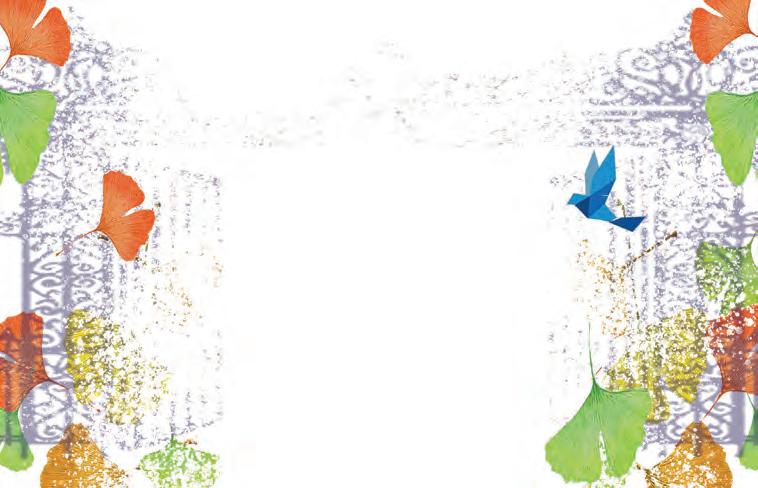

SEPTEMBER FRI 6th 1–7 SAT 7th 10–7 SUN 8th 10–5
Join StandWithUs for its inaugural Pittsburgh Community Reception honoring Pittsburgh City Controller Rachael Heisler and featuring keynote speaker Lt. Col. (Ret.) Jonathan Conricus. 6 p.m. Early bird: $90; VIP: $250. Rodef Shalom Congregation, 4905 Fifth Ave. standwithus.com/pittsburgh-event-2024.
The 10.27 Healing Partnership presents Fall Forest Bathing. “Bathe” in the sounds and sights of nature during gentle walks through Frick Park while nurturing your connection to the natural world through reflective practices. 10 a.m. Lower Frick Park (entering o Hutchinson in Regent Square). 1027healingpartnership.org/forestbathing-4.
SUNDAY, SEPT. 15
Join the Brotherhoods of Temple Sinai and Rodef Shalom Congregation for a Brunch & Panel Discussion with state Sen. Jay Costa and state Rep. Dan Frankel. The two will share their thoughts on how we can participate in the democratic process most e ectively during election years and in oyears. Brunch includes French toast, vegetarian jambalaya and homemade gravlax (salt-cured, unsmoked salmon). Pre-registration: $18 per person (by Wednesday, September 11); $22 per person at the door. 5505 Forbes Ave. templesinaipgh.org/ programs-events.
Join Chabad of Squirrel Hill for a Women’s Mini Retreat. Enjoy a day of exciting workshops, crafts and words of inspiration to help prepare for the High Holidays. 11 a.m. 1700 Beechwood Blvd. $54. chabadpgh.com/retreat.
WEDNESDAYS, SEPT. 18; OCT. 16; NOV. 20; DEC. 18
Join AgeWell for the Intergenerational Family Dynamics Discussion Group at JCC South Hills the third Wednesday of each month. Led by intergenerational specialist/presenter and educator Audree Schall. The group is geared toward anyone who has children, grandchildren, a spouse, siblings or parents. Whether you have family harmony or strife,
these discussions are going to be thought-provoking, with tools to help build strong relationships and family unity. Free. 12:30 p.m.
THURSDAY, SEPT. 19
Join Chabad of Squirrel Hill for a Women’s Farbrengen, an evening of Chassidic songs and stories on the topic of “Stepping into the Light.” Enjoy hot drinks and desserts. 7 p.m. 1700 Beechwood Blvd. $10 suggested donation. chabadpgh.com/farbrengen.
SATURDAY, SEPT. 21
Join Temple Sinai for Jewish Caroling: The Music of Carole King, Carole Bayer Sager and Carolyn Leigh, with Rabbi Debbie Zecher. Free and open to the public. Reservations and donations appreciated. 7 p.m. 5505 Forbes Ave. templesinaipgh.org/ programs-events.
THURSDAY, SEPT. 26
The Holocaust Center of Pittsburgh is pleased to welcome Alex Kor and Graham Honaker for A Blessing, Not a Burden: The Story of Two Holocaust Survivors, Eva and Mickey K 6 p.m. Rodef Shalom Congregation, 4905 Fifth Ave. eventbrite.com/e/995324782217?a =oddtdtcreator.
SATURDAY, SEPT. 28
Join Temple Sinai and Rodef Shalom Congregation for guest speaker Rabbi Michael Zedek, dessert, reception and service with Rabbi Daniel Fellman, Cantor David Reinwald, Rabbi Sharyn Henry, Cantor Toby Glaser and the Temple Sinai and Rodef Shalom combined choirs. 7:30 p.m. Rodef Shalom Congregation, 4905 Fifth Ave.
Everyone is invited to Temple Ohav Shalom for a Selichot Sound Bath. Prepare for the Jewish New Year with havdalah and a meditative soundscape featuring singing bowls and other healing instruments. To relax on the floor, please bring your own mat, blanket and comfort items. Chairs and a limited number of mats will be provided. RSVP required. 8 p.m. 8400 Thompson Run Road, 15101. forms.gle/1ezybsvudP8dmjp26. PJC
The Pittsburgh Jewish Chronicle invites you to join the Chronicle Book Club for its Sept. 22 discussion of “The Singer Sisters,” by Sarah Seltzer. From the Jewish Book Council: “Journalist and cultural critic Sarah Seltzer has written a remarkable debut novel that taps into her deep well of knowledge about feminism and rock history. 'The Singer Sisters' is about two generations of a folk-rock dynasty and the sacrifices these female artists must make in the pursuit of their dreams."
“The chief protagonists, though ‘antagonists’ might be a better word, are 1960s folk legend Judie — think Joan Baez or Judy Collins — and her nineties-era, black nail polish–wearing, alt-rock daughter, Emma. This ingenious story weaves in fascinating subplots about other members of their talented clan as it explores the conflict between being a mother and writing great songs.”
Your hosts
Toby Tabachnick, editor of the Chronicle
David Rullo, Chronicle staff writer

How it works
We will meet on Zoom on Sunday, Sept. 22, at 1 p.m.
What to do
Buy: “The Singer Sisters.” It is available at some area Barnes and Noble stores and from online retailers, including Amazon. It is also available through the Carnegie Library system.
Email: Contact us at drullo@pittsburghjewishchronicle.org, and write “Chronicle Book Club” in the subject line. We will send you a Zoom link for the discussion meeting. Happy reading! PJC
— Toby Tabachnick


Harris campaign says Trump ‘denigrates American Jews’
The Kamala Harris campaign said Donald Trump “consistently denigrates American Jews, elevates Neo-Nazis, and traffics in antisemitic tropes,” escalating the war of words between the two presidential campaigns over Jewish voters, JTA.org reported.
“Vice President Harris and Gov. Walz have decisively called out antisemitism in any form their entire careers, and our campaign will always be clear: Antisemitism and hate have no place in the Democratic Party or in our country,” spokesman Charles Lutvak said in an email in response to a question about the war of words between leading Jewish Democratic and Republican groups.
“There is one candidate in this race who consistently denigrates American Jews, elevates Neo-Nazis, and traffics in antisemitic tropes, and it is Donald Trump,” he said. “And our campaign is uniting voters who reject his rhetoric of hate and will defeat him at the ballot box in November.”
The accusation, in a statement late Wednesday to the Jewish Telegraphic Agency, comes after days of increasingly heated exchanges between the parties’ Jewish affiliates, the Jewish Democratic Council of America and the Republican Jewish Coalition. It also comes weeks after Trump said that Harris “doesn’t like Jewish people,” and after he has repeatedly said
that Jewish Democrats need to “have their head examined.”
Seattle Jews will remount an antisemitism exhibit months after museum staff shut it down
After dozens of staffers at a Seattle museum walked off the job to protest an exhibit on antisemitism they claimed was “Zionist,” area Jewish groups and the museum all pledged that the exhibit would find a new home, JTA.org reported.
Months later, the Jewish groups are still planning to mount a version of the exhibit, called “Confronting Hate Together.” But they will do so without their original partners, the Black Heritage Society of Washington State and a museum dedicated to Asian American, Native Hawaiian and Pacific Islander heritage. Instead, the Jewish groups say the exhibit will be housed in a Jewish space.
The groups cited “circumstances out of our control” and said that the experience had left local Jews feeling isolated at a time of great need.
“Immense harm has been caused to the Jewish community by not being able to show the exhibit,” the Washington State Jewish Historical Society and the Jewish Community Relations Council of Greater Seattle said in a joint statement. “Antisemitism today is at its highest levels in over 40 years, and more allyship is needed to help meet the moment.”
George Washington U suspends Jewish Voice for Peace chapter
George Washington University has suspended its chapter of Jewish Voice for
Sept. 2, 1953 — Israel begins Jordan River project
Peace just days before the start of the new semester, according to JTA.
The private university in Washington, D.C. also suspended Students for Justice in Palestine and put six other pro-Palestinian student groups on probation, in a preemptive move that signals the school expects campus protests against the Israel-Hamas war to resume as students return to campus in the coming days.
The groups were temporarily suspended last fall after pro-Palestinian students projected inflammatory messages on campus buildings, including “Glory to our martyrs” and “Free Palestine From The River To The Sea,” weeks after Hamas’ Oct. 7 attack on Israel. The school’s chapter of JVP, the anti-Zionist Jewish group, supported that protest and said on social media that it stood behind every message.
The new suspension means that the groups will not receive official university recognition, funding or any other forms of institutional support this semester. In the spring, they will go on probation and will have to seek permission to hold any on-campus events.
An Oregon man has been charged with making multiple antisemitic threats involving explosives against Jewish health care centers in the New York City and Long Island areas in 2021, the United States Attorney for the Eastern District of New York and the FBI’s New York field office announced Tuesday, according to JTA. Domagoj Patkovic, 31, was arrested at his
home in Portland Tuesday morning. He and his co-conspirators were “motivated by their hatred of Jewish people, targeted Jewish hospitals and care centers in New York City and on Long Island with hoax bomb threats, needlessly endangering patients and staff by creating chaos and alarm,” U.S. Attorney Breon Peace said in a statement. The threats predated a recent spree of bomb threats against Jewish institutions, mainly synagogues, that began in the summer of 2023. There have been multiple arrests in connection with those threats, as well.
JNS poll: Israelis like Kamala Harris less than they liked Joe Biden
In a JNS/Direct Polls survey of Israelis conducted on Aug. 19 regarding their view of the presidential race that pits Vice President Kamala Harris against former President Donald Trump, Harris enjoys the support of 28% of Israelis to Trump’s 64%, with 9% of Israelis professing to have no opinion.
In a JNS/Direct Polls survey of Israelis carried out on July 9, 34% of respondents supported Biden to 55% for Donald Trump and 11% had no opinion.
In this week’s poll, Harris has virtually no support among Israelis aged 18-29; 93% support Trump compared to 7% for the vice president. All age groups support Trump against Harris by well over 50 points except seniors. Israelis 65 and over are tied with 43% supporting each candidate and 14% undecided. PJC
Compiled by Jarrad Saffren
Aug. 30, 1944 — MacMichael ends term in Palestine
Rattled by numerous attempts on his life, Harold MacMichael resigns as Britain’s fifth high commis sioner to Palestine after more than six years, a period of rising restrictions on Jewish immigration.
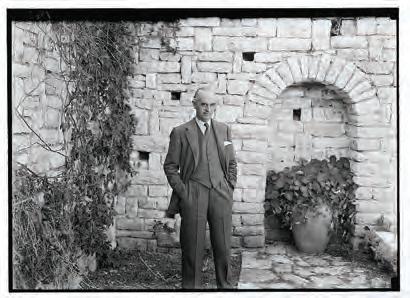
Israel starts work on a project to divert some of the water of the Jordan River at the B’not Yaakov Bridge in the north to irrigate the Negev and generate electricity. Syria’s protests quickly halt the
Sept. 3, 2011 — March of the Million seeks social change

Aug. 31, 1947 — U.N. Palestine panel holds last meeting
The U.N. Special Committee on Palestine, formed four months earlier to investigate violence and recommend next political steps for the Britishadministered region, meets for the final time. Its majority report recommends partition.
Sept. 1, 1891 — Artist Yosef Zaritsky is born Painter Yosef Zaritsky is born near Kyiv. He moves to the Land of Israel in 1923. He is one of the founders of the Ofakim Hadashim (New Horizons) movement, which emphasizes universality and the abstract.
More than 450,000 Israelis take to the streets to demand ocial justice and relief from the high cost of living in the March of the Million, believed to be Israel’s largest-yet demonstration.
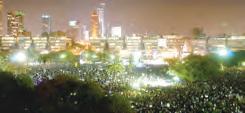
p Protesters fill the streets of Tel Aviv to demand social justice and relief from the high cost of living.
www.avivi.org, CC BY-SA 2.0, via Wikimedia Commons
Sept. 4, 1985 — New shekel is introduced
The new Israeli shekel becomes the official currency. It is worth 1,000 of the old shekels, which became Israel’s currency five years earlier but are being replaced under an economic stabilization plan.
Sept. 5, 1978 — Camp David summit begins
President Jimmy Carter convenes Egyptian President Anwar Sadat and Israeli Prime Minister Menachem Begin and their teams at a Maryland retreat to hammer out a peace plan, the Camp David Accords. PJC

By Toby Tabachnick | Editor
If you visit artist Yafa Negrete’s Instagram page, you’ll see vivid landscape paintings, lovely watercolor flowers and several compelling portraits in black pencil and pastel.
What you won’t see on her latest portrait post — a work in progress of a dual U.S.-Israeli citizen who was murdered and abducted on Oct. 7 by Hamas terrorists— is the name of the subject.
Itay Chen, 19, was an Israel Defense Forces soldier. His body remains in Gaza.
Negrete refrained from naming him on Instagram, she said, because she feared it would unleash a torrent of antisemitic comments.
“I actually follow an account of a person that makes portraits of hostages, and I have seen the [antisemitic] comments on their posts,” she said. “Some of them are very awful. I don’t want those comments to be on my account.”
As antisemitism proliferates among some far-left progressives in Pittsburgh, the art world is far from immune. The Chronicle spoke with several local artists who say they are disgusted with the antisemitic social media posts and comments coming from many of their colleagues since Oct. 7. Some agreed to speak only anonymously, for fear of retribution.
Sara (a pseudonym), who is involved in the local arts scene and considers herself a Zionist, said the anti-Israel rhetoric and her to think twice before attending arts events.




standing that ‘Zionist’ means supporting Israel’s right to exist…. And if you’re Jewish, and

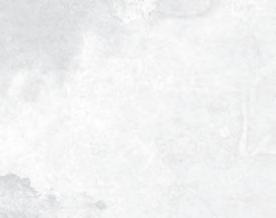

“Surround yourself with people that re ect who you want to be and how you want to feel, energies are contagious”






you’re pro-Israel, which makes you a Zionist, you’re somehow not welcome in
line posts by her peers, Sara said, often contain “the misuse of words, things that aren’t true” — words like “apartheid,” “genocide” and
“If you try to bring up the concept of, ‘Don’t say “Globalize the intifada,”’ they ell you, that’s not what it means,” Sara said. “You know, there’s a lot of gaslighting. It’s been uncomfortable to try to figure out what events
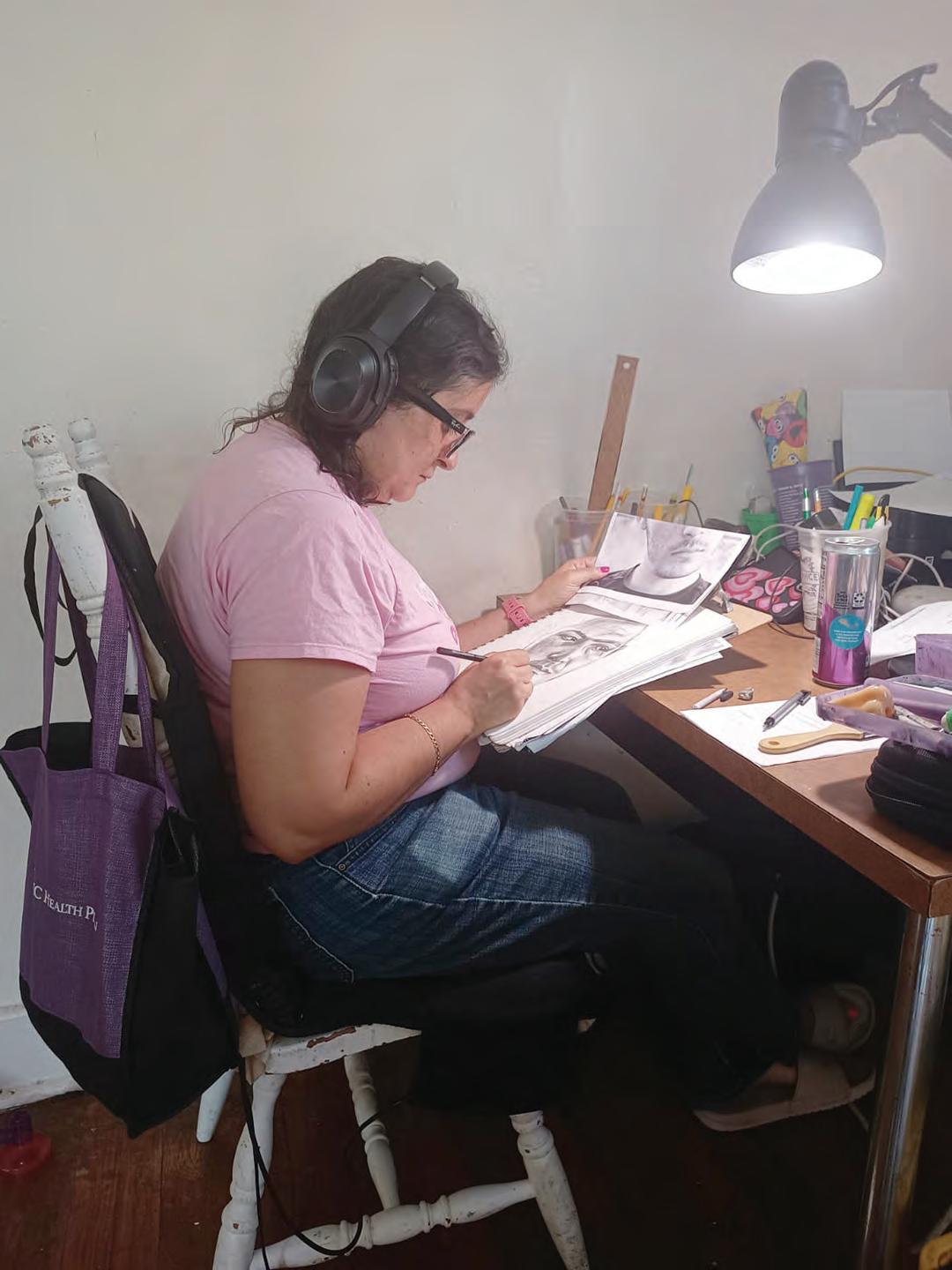
She knows of other Jews in the arts community who feel the same way.
“Other Jews have felt uncomfortable,” Sara said. “They feel like they’ve been slighted in conversations. They feel like they’re getting sideways glances.”
While Sara doesn’t think Jews are necessarily being blacklisted in the local arts community, “I don’t think they’re being welcomed,” she said, “and that in itself is a way of pushing people away.”
Changing course
Local artist Paula Garrick Klein — who is Jewish, but whose art usually does not depict Jewish subjects — said she has not felt threatened, or been blacklisted. But she is choosing to spend her time differently than she has in the past. Instead of frequenting art openings, she wants “to be more around Jewish people and in Jewish spaces,” she said. “And I think that’s made me a lot more comfortable.”
Klein has seen some of her fellow artists condemn Israel on social media. And she has had “some very uncomfortable conversations” with progressive friends, she said.
“I used to think I was progressive,” Klein said, “but I don’t want to be part of that label anymore, because of the way they’ve condemned Israel from the day after [Oct. 7]. I mean, they didn’t even wait — especially the politicians, the progressive politicians.”
Klein is immersing herself in “understanding the history of the region,” she said, “because that’s how I make myself more comfortable understanding what’s going on and what has gone on. So I’ve read some books, and they’ve really exposed a lot of the of the lies that the media and academia are expressing, and it makes me very angry, and I want to tell people, but I don’t know how. I don’t know how to tell people that their
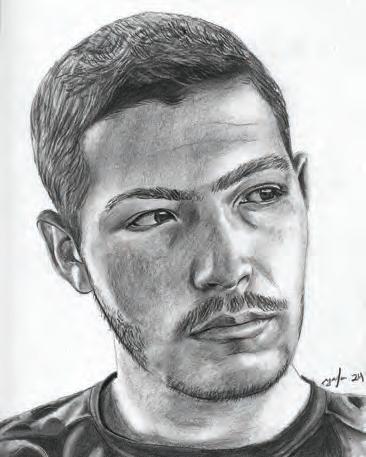
understanding of the situation is really wrong and biased, and they’ve been lied to. And so I find myself in very uncomfortable conversations with people that I like, and then I find myself not wanting to talk to them anymore.”
Becky (a pseudonym), a visual artist of Moroccan and Israeli descent, said that the antisemitism she’s seen in the arts community began before Oct. 7. While her Moroccan identity has been embraced, she said, her Israeli identity has been rejected.
“It was just a really strange acceptance of, like, that side of me is accepted, but not this side,” she said.
Much of Becky’s art is Jewish-themed. Her peers know that she is Jewish and that she speaks Hebrew.
After getting into a discussion with another artist about Oct. 7, Becky said, he posted on social media that “anyone who was ‘whitefacing’ has no right to comment or say anything about what happened or is happening as a resistance in Palestine.”
“I couldn’t not take that really personally,” Becky said. “And it’s not the first time in the arts community that I’ve been called ‘white-faced,’ or that’s been used against me.
“Having that said to me, and being only accepted for one side of me like that, I felt shut out, like that my voice doesn’t matter — just like all the other Jews who are speaking out against Oct. 7 are in shock,” she said. “You know, we had like, one day, maybe 24 hours, that there was sympathy, and then it was just like, ‘No, this didn’t happen.’ Everything went to ‘This is the resistance.’”
Becky has been snubbed at various arts “events, she said, which she attributes to her support for Israel. She has created a lot of art inspired by Oct. 7, which she posts on Instagram, where she says a lot of anti-Israel rhetoric spreads.
Heartbroken — and angry
Negrete, who works as a graphic designer at the Jewish Community Center of Greater Pittsburgh, grew up in Mexico and met her husband on Kibbutz Nir Yitzhak, one of the kibbutzim attacked on Oct. 7. Because of her connection to the kibbutz, she said, she felt “very overwhelmed by the situation.”
By Adam Reinherz | Senior Staff Writer
Squirrel Hill resident Ben Pinkston discovered that the best plans can be those not made.
Months ago, Pinkston, 17, wanted to return to Israel. The Pittsburgh Allderdice student traveled to the Jewish state with Diller Teen Fellows in 2023, but as this summer approached, he couldn’t find a viable option.
On June 23, Pinkston, his sister and their mother, Jackie Braslawsce, were in Arizona visiting family. Pinkston received a message from Chabad of Greenfield’s Rabbi Yitzi Goldwasser asking if he wanted to go to Poland and Israel for free.
Pinkston and his mother couldn’t believe it.
“I was trying to figure out summer plans,” Pinkston said.
After hearing about CTeen Heritage Quest, a program run by Chabad Teen Network, Pinkston immediately said yes.
“The timing worked out perfectly,” Pinkston told the Chronicle.
Braslawsce needed to get her son to Newark for the flight, but there was a catch: Pinkston’s passport had expired.
Still in Arizona, Braslawsce contacted the nearest passport office and asked about obtaining a valid document.
The Pittsburgher said she was told that if she could make it there and bring the necessary materials, the passport situation could be resolved.
“We drove five hours from northern Arizona to Tucson, walked in with all of Ben’s stuff and
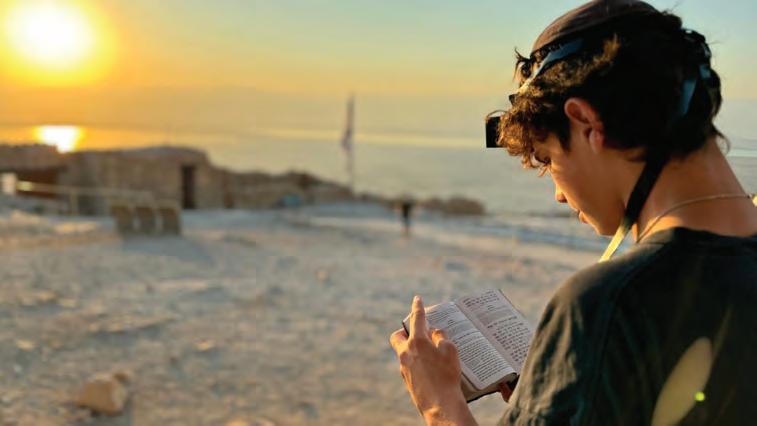
walked out with his passport,” Braslawsce said.
Pinkston, his sister and mother returned to Squirrel Hill on July 6. Two days later, Braslawsce and her son caught a ride with a friend to Newark. On July 9, Pinkston was en route to Poland.
Things happened so quickly, Braslawsce said, that it was only on the way to the Newark airport that she and her son realized he didn’t know a single person going on the trip.
Additionally, Pinkston said, “I didn’t know what to expect with Chabad.”
The teen had traveled to Israel with Diller, a pluralistic program.
“I thought that being around more Orthodox Jews would be a little intimidating,” he said, but the experience delivered new insights and great friendships.
“I learned a lot from both programs (Diller and Chabad),” he said. “With Diller, the focus was on how to help the world and
be a leader. With this one, it was more about Jewish heritage.”
Before heading to Israel, CTeen participants spent five days in Poland touring Warsaw and Kraków. They prayed in former synagogues, saw remnants of the Warsaw Ghetto and visited Auschwitz.
“It was pretty intense,” Pinkston said of the latter. “What we were hearing and learning was way insane. It was so nuts. They taught us so much about the Holocaust that we didn’t know.”
While traversing the concentration camp, a thought kept entering Pinkston’s mind.
“We’re living, and we’re in this space,” he said.
Pinkston credited the tour guide with amplifying the visit through impactful information and stories.
“He would tell us them in a way that you could feel it,” Pinkston said.
As the day passed, the teens made their way through Auschwitz I (the main concentration camp) and Auschwitz II-Birkenau (a concentration and extermination camp).
Before leaving the sites, Pinkston said he had the “privilege” of laying tefillin.
“That was special,” he said. Decades ago in that same space “were people who died because they were trying to wrap tefillin.”
Pinkston’s five days in Poland were educationally and socially enriching.
“We kids would talk about it during free time,” he said. “Experiencing this crazy place together, where a bunch of our ancestors died, brought us really close.”
By the time they got to Israel, bonds were solidified, the teen continued: “The trip was structured perfectly.”
Pinkston and his new friends spent two-and-a-half weeks experiencing the Jewish state by touring and volunteering. They went to Bedouin tents, helped at a pantry, planted crops on a farm and traveled to Hebron, Tel Aviv and Netanya, all while being based in Jerusalem.
Though battles occurred nearby, Pinkston said he felt safe.
“If you were there and didn’t know about the war, it would be hard to tell,” he said.
Braslawsce said she gauged the situation by contacting friends in the Jewish state before Pinkston traveled — but never considered not sending him.
“I wasn’t thinking that at all,” she said. Although some people’s “first reaction was ‘There’s a war,’ my first reaction was, ‘I feel like my son is safer in Israel than he is in Pittsburgh.’”
Please see Chabad, page 17
By Adam Reinherz | Senior Staff Writer
Teachers are about to hit the books in preparation for international travel.
Beginning this fall, 15 Pittsburgh Jewish day school educators will spend the academic year exploring Jewish history, Zionism, the Arab-Israeli conflict and antisemitism before heading to Israel for further study.
Designed and administered by Classrooms Without Borders, the seminar will bolster teachers’ understanding of Israel and related topics in order to help their students address contemporary challenges. The Jewish Federation of Greater Pittsburgh contributed $60,000 to help fund the program.
This past year demonstrated the need for educators to develop expertise in issues concerning the Jewish state, according to CWB founder and executive director Tsipy Gur.
“After Oct. 7 we learned how much help the Jewish day schools need,” she said.
With students asking myriad questions about the present and the past, Gur continued, educators must be able to supply answers.
The yearlong seminar has three primary foci, Gur said: The “unbroken relationship” between the Jewish people and the land of Israel from antiquity through now; the origins of antisemitism and its current manifestations in the U.S.; and the rise of Zionism, establishment
Israel in 1983, previously served as director of the Archaeological Seminars School for Israeli Tour Guides, participated in rewriting the curriculum of the National Guiding courses for the Israeli Ministry of Tourism and taught in Yad Vashem’s International School for Holocaust Studies.
Casey Weiss, Community Day School’s head of school, is eager for CDS staff to join the seminar.
“Pittsburgh is one Jewish community and this trip is just another example of that,” she said.
Participating staff from the schools are going to “build their own cohort, and they’re going to
build their own kind of community, which to
Hillel Academy of Pittsburgh Principal Rabbi Sam Weinberg said he is excited for Hillel staff to learn alongside Jewish day school colleagues, and urged the cohort to recognize
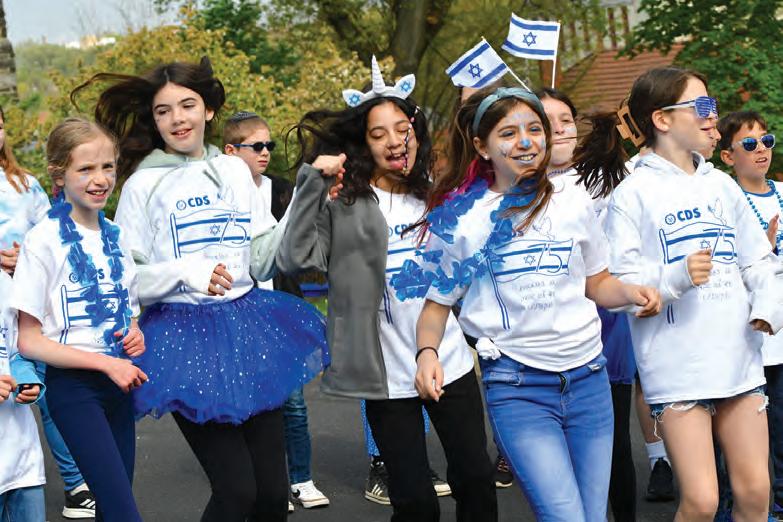
“Now more than ever we need to make sure all of our teachers understand the full breath of Jewish history and our relationship to Israel,” he said. “I think a lot of our teachers — growing up in society today — are presented a one-sided view of Israel and the political situation there, and the only way to truly understand our relationship to Israel, our beliefs and Weltanschauung is to have them study and send them to Israel.”
Recent polling points to generational divides regarding Israel.
A February study from Pew Research Center about the Israel-Hamas war found that 14%
of adults under age 30 say their sympathies lie mostly with the Israeli people. Among adults 65-plus, the number is 47%.
During the past year, young people’s attitudes toward Israel have declined, according to Gallup.
Whereas 64% of 18- to 34-year-olds held a favorable view of Israel in 2023, the number plummeted to 38% in 2024, researchers found.
Students in the city’s three day schools are younger than those polled, but teachers are not, and the trends must not be ignored, local administrators explained.
Teachers often fight an uphill battle when it comes to addressing Israel and Jewish history, Yeshiva Schools of Pittsburgh CEO Rabbi Yossi Rosenblum said.
“Students are being bombarded by marches and attitudes,” he said. “They are watching what’s going on in Pittsburgh right now, and they need to be given the talking points, understand what antisemitism is, how it’s being expressed and what is going on in Israel and Gaza.” CWB is investing in the community’s teachers, and the dividends must be immediately reaped, Rosenblum continued.
“They’re going to strengthen teachers but we need to bring it to the students as quickly as possible,” he said.
The cohort has not yet been named. Each of the day school leaders said they will determine participants in the coming weeks. PJC
Adam Reinherz can be reached at areinherz@pittsburghjewishchronicle.org.

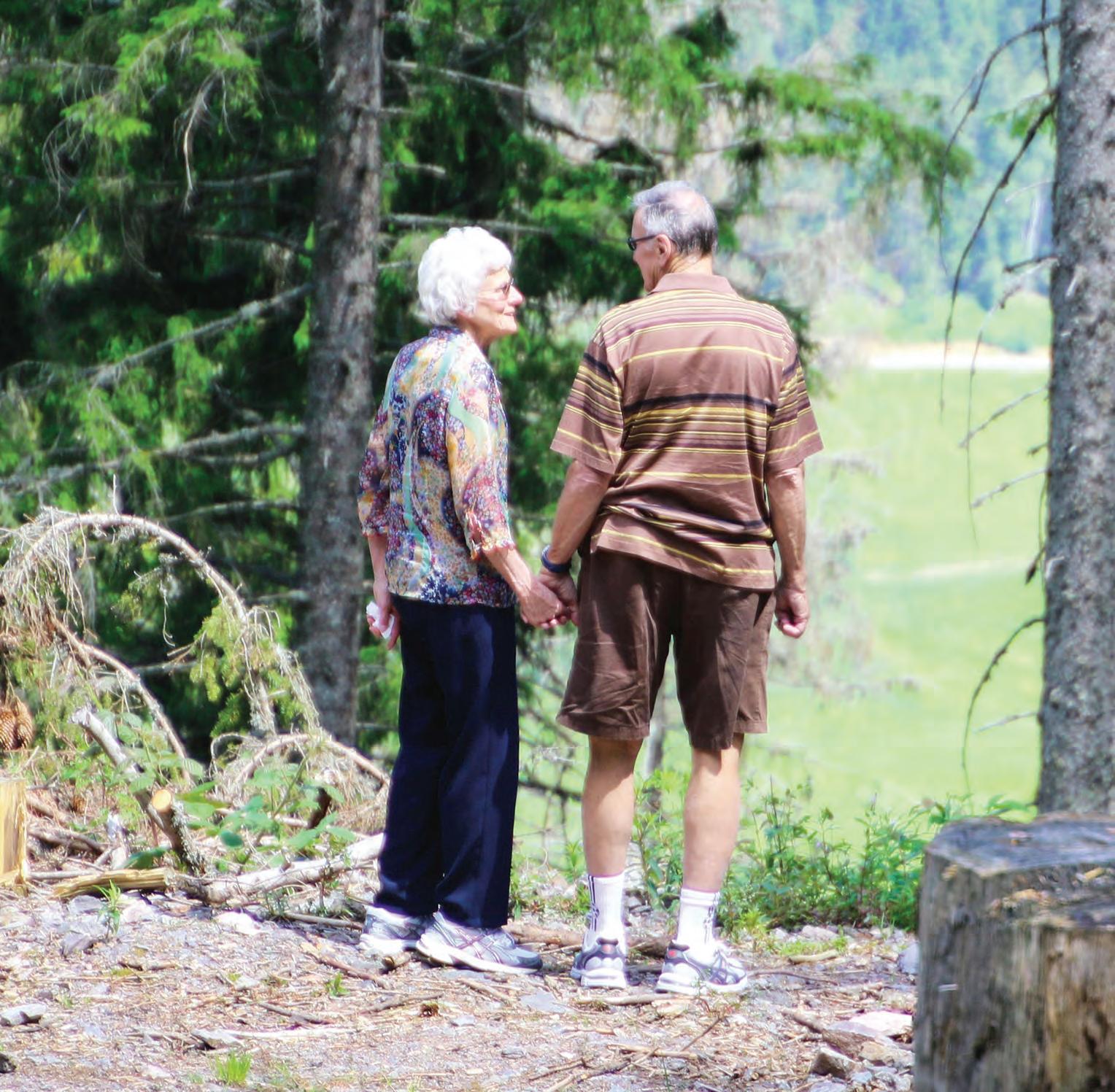






Guest Columnist
Jeffrey Weinberg
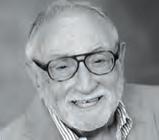
Do you write yourself notes to remember to take your wallet, keys, coat and cellphone? How often do you forget one of the items? Does this mean you are getting dementia?
Forgetfulness can be a normal part of aging, but forgetting something every now and then does not impact your quality of life.
Dementia includes the loss of cognitive functioning — thinking, remembering, learning and reasoning — and behavioral abilities. These situations interfere with your quality of life and activities.
Here are sample situations that can help you understand the difference between normal forgetfulness and dementia.
develop Alzheimer’s.
Neither forgetfulness, nor MCI, nor dementia can be fully prevented, but you can take steps to keep your memory and cells healthy.
One of the most important ways you can practice self-care is to address hearing loss early.
Those with hearing loss often expend more energy than they should to follow a conversation. The shift in energy expended when trying to hear, occurring over an extended period, can contribute to a loss in cognitive function.
Getting your hearing checked frequently can help keep your brain healthy.
Memory may also be affected by medical conditions such as depression or blood clots, head injuries, or thyroid, kidney or liver problems.
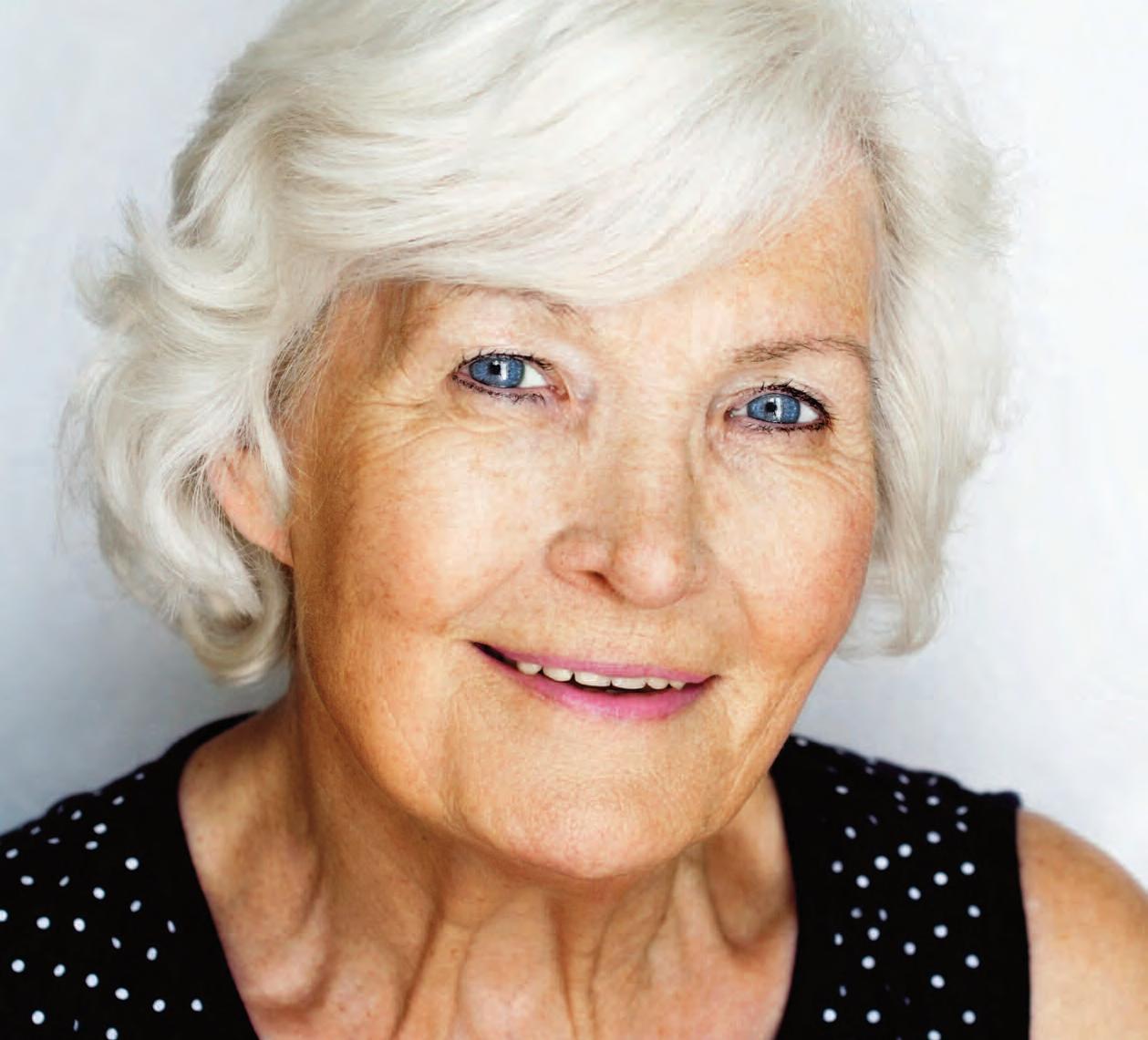
Some medications may also cause memory issues, as can drug and alcohol use, sleep disorders and low levels of vitamins, such as B12.
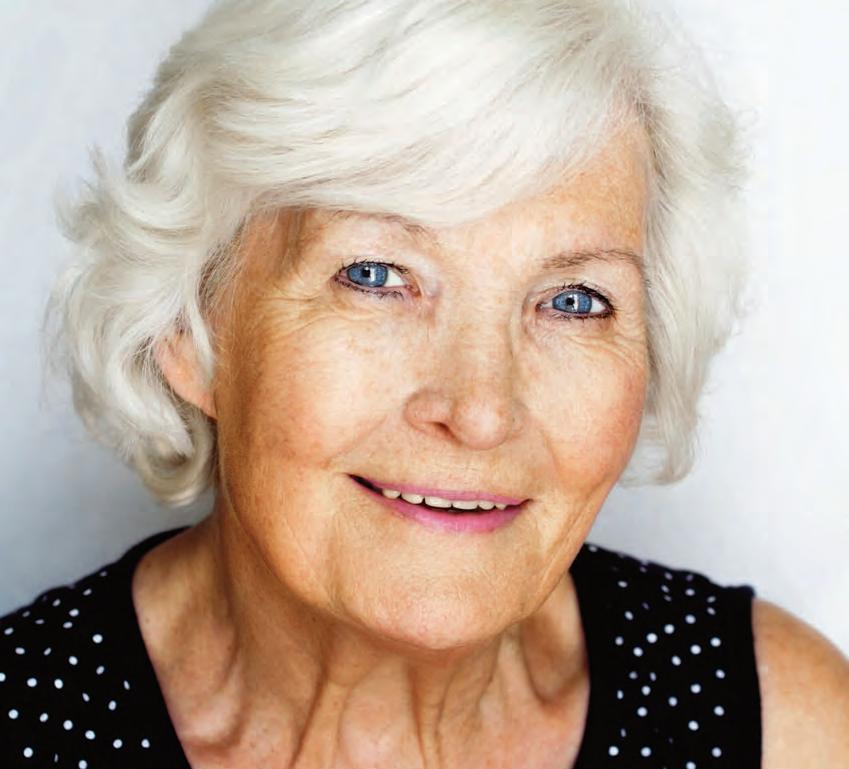
Talk to your doctor if you feel one of these challenges may be causing your
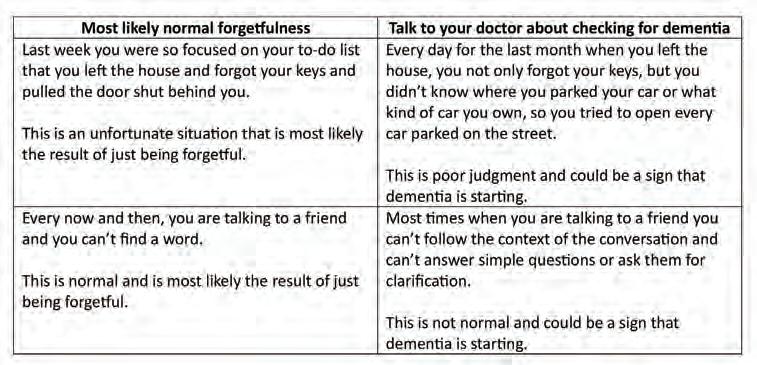

Forgetfulness can be part of aging; typically, when you forget something, it’s because you are distracted or not focused on the moment.
Dementia is a medical condition and is related to cells dying off and not regenerating. Factors such as lifestyle, poor diet, stress and environmental issues such as pollution can contribute to cells dying off faster and to the onset of dementia. Some older people may experience mild cognitive impairment (MCI). These people often have more memory or cognitive issues than other people their age, but they are still able to manage their activities.
MCI may be an early sign of Alzheimer’s disease, but not everyone with MCI will
It is important as you age to keep your
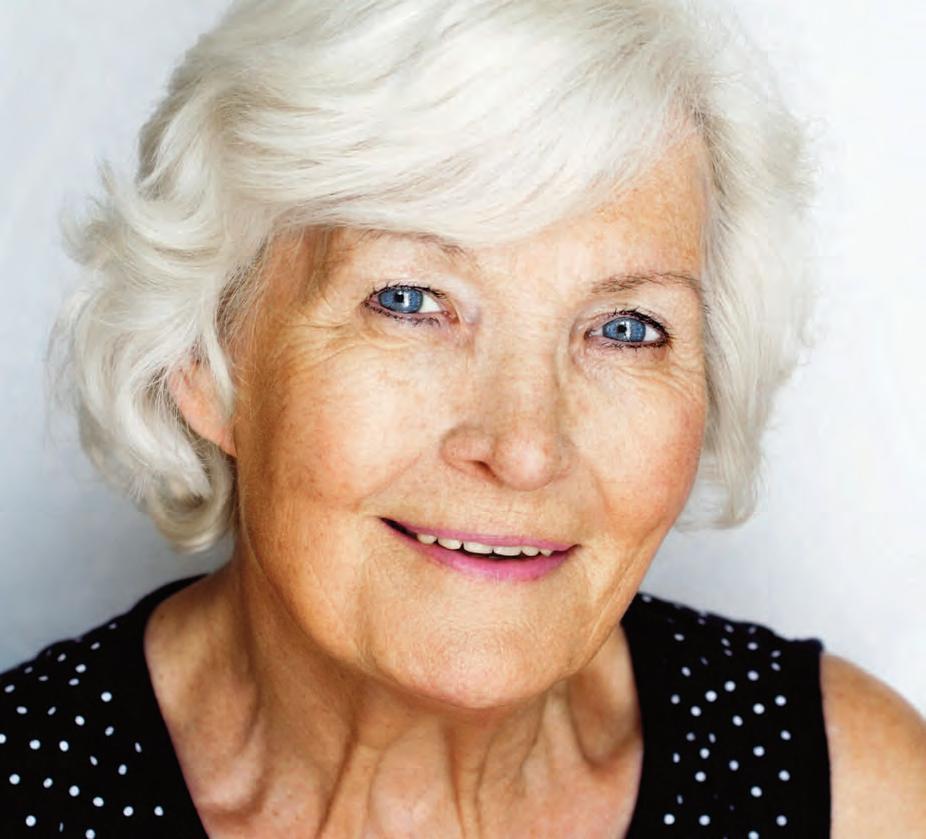
•SpaciousStudios,SuitesandOne-BedroomApartmentsAvailable
•HousekeepingandLaundryServices
•DeliciousMealsandSnacksDaily •VarietyofOptionstoSuitEveryone’sBudget
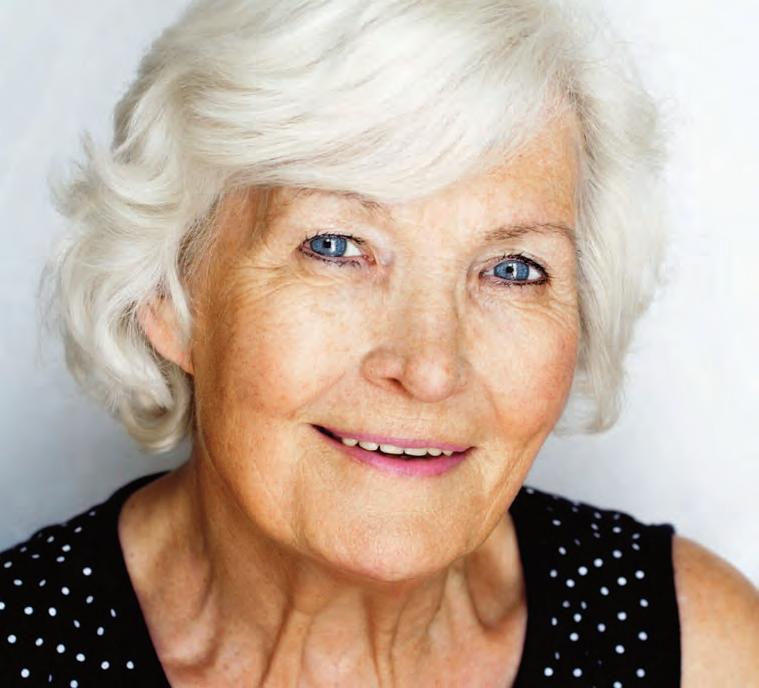
mentally
‒ Follow a healthy exercise plan.

•HousekeepingandLaundryServices
•DeliciousMealsandSnacksDaily •VarietyofOptionstoSuitEveryone’sBudget
‒ Learn new skills, such as playing word games, puzzles or cards games.
‒ Follow a daily routine and establish a purpose or reason to get out of bed each day.
‒ Put important items such as keys, purse, phone and coat in the same place each day.
Avoid falling for scam products and/ or services that claim they will help your memory or prevent dementia or Alzheimer’s. There is no medical evidence that any pill, supplement or special treatment will do this. Some of these products or services can be unsafe, a waste of money or both. PJC
Jeffrey Weinberg, M.ED, M. PH, NHA, is president of Caregiver Champion, LLC, and author of “The Emperor Needs New Clothes Or Why The Caring Disappeared from Health Care.” If you or someone you love is dealing with dementia, you can contact Caregiver Champion at 412-952-6944 for assistance.
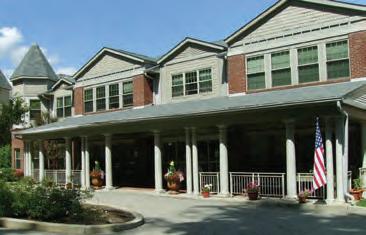
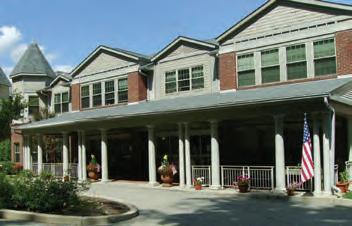
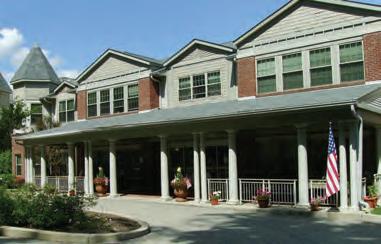


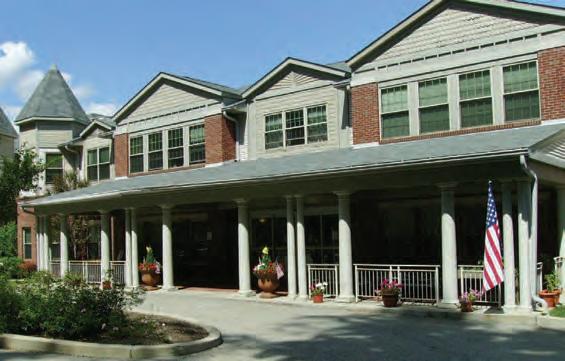
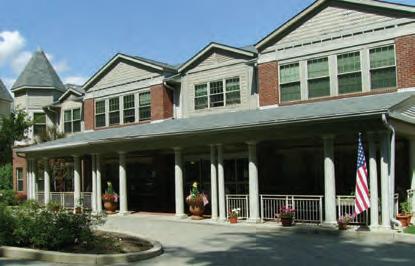
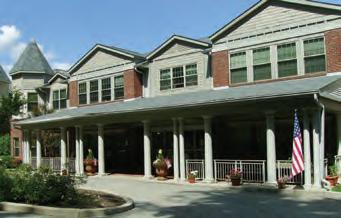

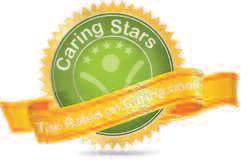




Guest Columnist
Jessica Neiss
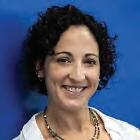
“Don’t lift too heavy, or you may hurt yourself.”
“Don’t take risks or you may fall and break a bone.”
“I’m afraid to play because I don’t want to break anything.”
Do any of these statements sound familiar? Aging does not have to equal fear and frailty. As a physical therapist, I educate my clients so they can stay strong and robust by incorporating these three things into their exercise plans: weight training, high-velocity power training and weight-bearing exercises that impact joints and bones.
Osteoporosis is the most common bone disease and is characterized by the weakening of bone tissue, bone structure and strength. People with osteoporosis are more likely to develop fractures. Osteoporosis is diagnosed via a DXA (Dual-Energy X-ray Absorptiometry) scan of the spine or femur, or if someone has a minimal fall and fractures a bone. Women are more likely to have low bone mass because of a drop in estrogen that happens during menopause.
Weight training is a powerful tool in combating osteoporosis. Lifting progressively
heavier weights exposes your body to stress, which tells your bones to build more bone. Weight training pulls on the muscles, which attach to bones. These forces cause bones to deposit more bone.
Just because you have been diagnosed with osteoporosis, you need not be afraid of lifting weights. In fact, it is even more important that you lift progressively heavier weights so that you can stimulate bone growth. I typically start people with three sets of the sub max amount that they can lift. If you are nervous, start a little lighter and then gradually increase the amount of weight you lift to see how your body feels the next day. My rule of thumb is, if you can lift 12-15 repetitions easily, it is time to increase the weight.
Weight training should be both comfortable and challenging. If something hurts, stop. However, progressing the weight over time is what helps you continue to make strength gains. If you have been lifting the same amount of weight for a long time, your body does not perceive it as a “stress” and the benefits of gaining strength and bone density plateau. The muscle may improve endurance or the amount of time it can lift that weight, but it needs to be continually stressed to gain strength, as does bone.
I wear a weighted vest during my walks and jogs to add extra weight to my spine, as I have low bone mineral density in my spine. Weighted vests range from four pounds to more than 50 pounds. I started with four

pounds, increased to six pounds and now I’m up to eight pounds.
High-velocity power training involves moving quickly with a lot of force, such as jumping or hopping. As we age, muscle strength and power decrease over time. It is important to continue to practice moving quickly so that you do not lose this ability. Not only is it important to maintain strong bones, but moving quickly is also important to prevent falls. Tripping and slipping require you to catch yourself by stepping rapidly. Playing tennis, pickleball, plyometrics, jumping rope, jumping on a mini trampoline, or jumping jacks are all ways that you can practice. If these seem daunting, start by putting your hands on the seat of a chair or your bed and practice jumping your legs out like a jumping jack to take off some of the weight. Gradually raise the surface of your hands so you are eventually upright.
Finally, impact is what helps to build bone. If you love to bike or swim, those activities are wonderful for endurance, but they do not help to build bone. According to Newton’s Laws of Motion, for every action, there is an equal and opposite reaction. This includes building bone.
Here are some exercises that are easy and will give you a big bang for your buck in terms of impact on your bones: heel drops (raise up on your toes and let your heels drop rapidly to make a noise); marching by stomping your feet to make noise (both

At Home Senior Services is independently owned and operated by Mary Jo Dietrich, RN, BSN, and her husband David John Dietrich, PhD. They have over 17 years of operational experience and have assisted 1,700+ families over those years in our local communities.
They provide non-medical in-home senior care and daily companionship for you and or your loved one. Whether it is a Home Care Companion, a Home Health Aide, or a Certi ed Nurse Assistant that you need, At Home Senior Services can help.
Mary Jo has a passion for seniors and serves as an advocate for families who nd themselves in need of in-home care consultation. They can help you through the myriad of care, payment, and insurance options. They are licensed with the State of Pennsylvania and the Pennsylvania Department of Aging Program as an in-home care provider and work with the Veterans Aid and Attendance Program, Veterans Home Maker Program, long-term care insurance companies, they work alongside hospice care, and private pay clients.
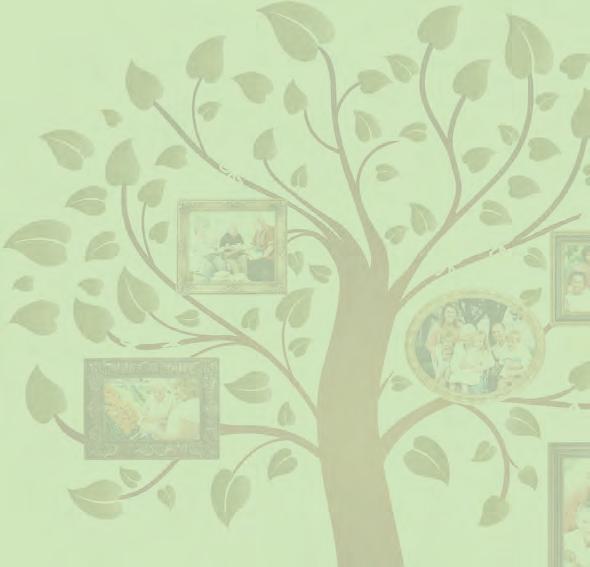
Most importantly, they are here for you … to understand, evaluate, and meet your family’s needs. Their services are available for as little as 4 hours a day to 24 hours a day, 365 days a year.
Their ultimate goal is to educate options to promote aging in place, which simply means to keep you or your loved one at home and remain independent with the care and assistance of their quali ed caregiving staff. Please check out our “Questions to Ask When Hiring an In-Home Care Agency”.
At Home Senior Services offers an in-home care assessment, where Mary Jo, who is a registered nurse, comes to your home to meet you and your family to discuss your loved one’s needs. She performs a nursing assessment, to then create a customized in-home care plan with the family.
At Home Senior Services choose their caregivers very carefully through an extensive hiring process, which sets them apart from other inhome care services. Each person is meticulously screened, interviewed and evaluated. In order to join their staff, they must also be friendly, com-
sitting and standing work); dropping down from a stair; plyometrics; and dancing. Make sure that you bend your knees to absorb some of the impact and gradually increase the amount of force you produce.
According to Dr. Nami Safai, an endocrinologist, geriatrician and osteoporosis researcher at UPMC, “Aging doesn’t mean you should expect to have fractures. There are lifestyle changes, exercises, dietary adjustments and medical treatments that can help prevent fractures. It’s important to work closely with your healthcare providers to screen for osteoporosis and implement these changes, just as you would for other conditions like high blood pressure or high cholesterol.”
Having a diagnosis of osteoporosis or osteopenia should drive you to take control and try weight training, high-velocity training and impact exercises. As with all exercise, contact your doctor for clearance, and ask a physical therapist for help in setting up a program to beat frailty and build stronger bones. PJC
Jessica Neiss is a physical therapist with 20 years of experience. She owns To Life! Therapy & Wellness, a Center in Squirrel Hill that offers physical therapy, occupational therapy and exercise classes for older adults and people with neurological conditions such as Parkinson’s or multiple sclerosis. tolifefitness.com.
passionate and have a commitment for helping seniors, only people who we would have help our own mothers make the team. In addition to the usual screening criteria, they also perform:
• Criminal Background Checks
• Integrity Testing
• Drug Urine Testing
• Driving Record Checks
• Nursing and Competency Exam
• Ongoing Training by a Registered Nurse
Services offered include:
Bathing and General Hygiene
Companionship
Exercise
Family Respite
Light Housekeeping
Preparation
Medication Reminders


Transportation & Errands

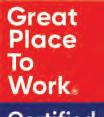

By Deborah Weisberg | Special to the Chronicle
Although many of his colleagues have retired, veterinarian Harvey Bendix is still going strong at 74.
A native Pittsburgher, Bendix has lived and worked in Westmoreland County since founding Norwin Veterinary Hospital with his wife Diane 47 years ago.
In that time, he has treated thousands of dogs and cats, mentored graduate vets, taught pet emergency care to first responders and served as a resource in cases of animal abuse.
He sees patients five days a week, reserves one day a week for surgeries and has no desire to step away from his life’s calling.
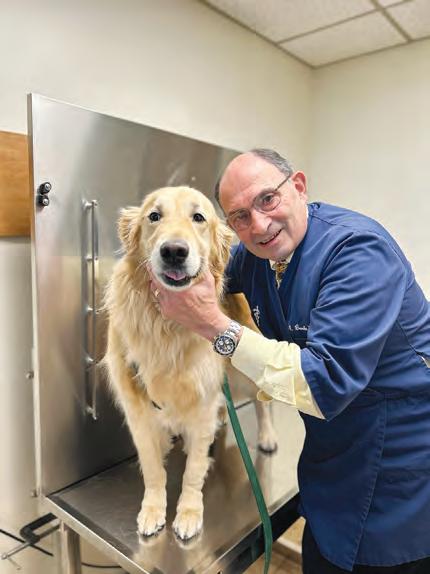
“I love what I’m doing,” Bendix said. “It’s a love and a passion. As long as my health holds out, I’ll be in practice.”
Bendix recently was feted by the Pennsylvania Veterinary Medical Association with a lifetime achievement award for his dedication to the health and welfare of animals, and for leadership in his profession.
The award represents the culmination of a dream he has held since childhood, having grown up in a big house in Friendship filled with all kinds of pets, and with parents who
nurtured his affinity for anything finned, feathered or furred.
“We had our own zoo,” he recalled. “We had dogs, cats and rabbits in the house, and ducks in the backyard. We had parakeets and an aquarium. My dad raised alligators and before they got too big donated them to the Highland Park Zoo.”
Bendix spent three summers as a teen working as a caretaker in the Children’s Zoo, where he was exposed to more exotic species. “I was around lions, bears, sea lions — everything,” Bendix said. “I cleaned enclosures and
handled feedings. I never had any fear.”
He also conducted educational shows for kids in the zoo’s amphitheater, and regularly appeared as “Mr. Harvey” with chimpanzees and other critters on “Romper Room,” a popular program on WTAE-TV.
After graduating from Penn State University, where he majored in animal sciences, Bendix went on to the University of Pennsylvania School of Veterinary Medicine.
“I worked my way through Penn by living at an animal hospital,” he said. “I’d do caretaking evenings and weekends in exchange for free room and board.”
Soon after earning his VMD, Bendix was introduced by a colleague to Diane Kronzek, a teacher whose father owned a kosher meat market in Highland Park. They married at Congregation B’nai Israel in Highland Park and together started Norwin Veterinary.
Although Bendix has a particular interest in complex internal medicine cases, he handles everything from trauma to preventive care to infectious diseases, having begun his career before veterinarians began specializing and today’s medical technologies became available.
“In the old days we’d have to diagnose through hands-on experience or exploratory surgery, and now ultrasound, CT, MRI and other protocols can enhance our ability to find illness in greater detail,” Bendix said.
Vincentian Schenley Gardens is poised to be the new frontier of the next generation of senior living – to upend the very definition of senior care. And redefine what it means to “care” for individuals and the greater community.
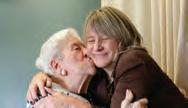

Intergenerational practice is for everyone, and Vincentian proudly leads the way in reimagining community by connecting people across generations in senior care, childcare, college life, and beyond.
Located in the heart of North Oakland, with easy access to all the cultural, healthcare and educational destinations in the city, Vincentian Schenley Gardens is an urban oasis.
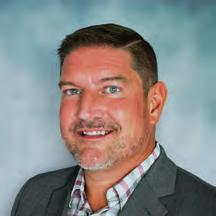
“But with 50 years of knowledge and practice, you pretty much have a handle on what’s happening with a patient.”
Sandra Rodkey, DVM, called Bendix “the best diagnostician I have ever met.”
“He’s like Sherlock Holmes in how he can piece things together to diagnose a case,” said Rodkey, who first worked for Bendix as a vet tech, and then returned years later as a veterinarian. She is now a partner in a practice in Kittanning.
Bendix was a role model and mentor, Rodkey said, who “taught me how to research a case and work to get the answer…that it doesn’t matter if you don’t get home until late; you do what you have to do for your patient.”
Longtime Bendix client Diane Beeler of North Huntingdon recalled seeing the lights on at Norwin Veterinary at 11:30 one night when she was on her way to an emergency clinic with one of her cats, Felicia.
“Dr. Bendix’s vehicle was in the lot, so I figured he was there,” she said. “I stopped and knocked on the door and he let us in.”
“He’s just the best, and he’s kind,” she added. “He puts forth every ounce of himself, and whatever is wrong he will figure it out.”
Although Bendix has seen just about everything, some cases are more memorable, he said.
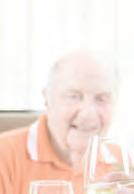






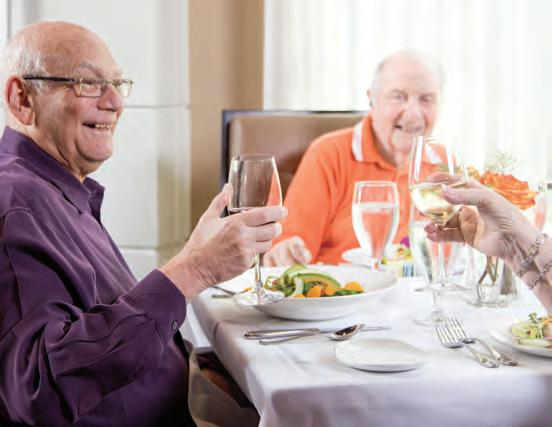
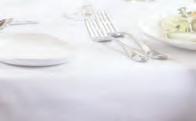
Is it possible to have the best of both worlds? At Sinai Residences, we say, Yes



Yes to upscale living in a down-to-earth atmosphere. Yes to a cultural worldliness in a culture of friendliness. Yes to having it all.








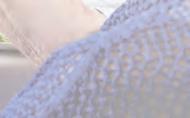
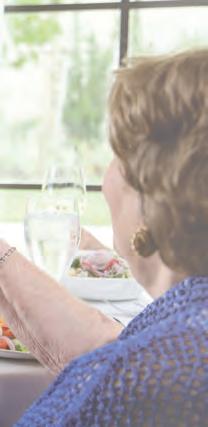
Guest Columnists
David Dietrich and Mary Jo Dietrich

6. Does the agency drug-test employees?
7. Are all of the employees insured and bonded? Does the agency use independent contractors?
8. How does the agency supervise and manage its staff? Does it have a nurse on staff?
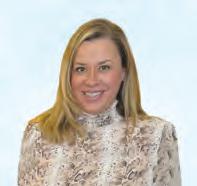
If you are considering hiring a nonmedical in-home care agency, we recommend considering the following questions.
We created this piece several years ago for our website, At Home Senior Services, and recently updated it to help families get the information they need to make better-informed decisions when hiring people to come into their loved one’s homes to provide care.
1. Is the agency licensed with the state of your residence, health department and Medicaid?
2. How long has the agency been in business?
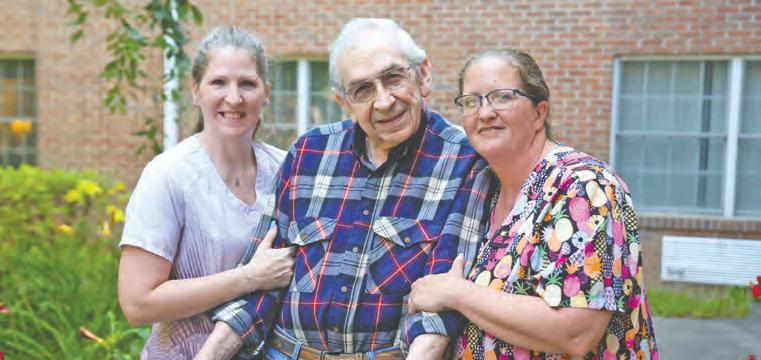
3. Does the agency answer calls 24 hours a day, and can you talk to someone evenings and weekends?
4. What experience, training and certificates does the agency require its employees to have?
5. Does the agency screen its potential employees and complete a criminal background check?
9. Does the agency send a registered nurse to assess the client and the client’s home before beginning service? If so, is that person responsible for generating a care plan?
10. Does the agency provide care around the clock?
11. Who owns the agency? Are the owners involved?
12. Will the agency provide a copy of a care plan?
13. Is there a minimum number of hours required to employ one of its caregivers?
14. What are the agency’s rates? Do the rates change depending on the services and times needed?
15. Does the agency have the capacity to assist at this time?
16. Does it offer specialized care for specific needs?
17. How does the agency match clients with caregivers?
In addition, ask the agency to provide a list of references, and do an internet search for reviews. PJC
Mary Jo Dietrich, RN-BSN, and her husband, David Dietrich, PhD, are the founders of At Home Senior Services, an in-home care agency dedicated to fostering independence in seniors. They can be reached at 412-604-0410. athomeseniorservices.com




At Concordia, we provide comprehensive care at our many locations in western PA or in your own home –all backed by 140+ years of experience. We have you covered with outstanding retirement living, home health, skilled nursing, personal care, hospice services and more. Learn more about our mission, services and career opportunities at www.ConcordiaLM.org or connect with us on social media.





By Family Features
The bonds found in friendships and other relationships are an important factor in health and wellness – even science says so.
According to the American Psychological Association, forming and maintaining social connections at any age is one of the most reliable predictors of a healthy, happy and long life. Studies show having strong and supportive friendships can fend off depression and anxiety, lower blood pressure and heart rates in stressful situations and change the way people perceive daunting tasks.
However, statistics show approximately half of U.S. adults lack companionship and feel socially disconnected, according to the U.S. Surgeon General’s Advisory on the Healing Effects of Social Connection and Community. In fact, 12% don’t have anyone they consider a close friend, per the Survey Center on American Life. This “epidemic of loneliness,” as coined by U.S. Surgeon General Dr. Vivek Murthy, can take a severe toll on mental and physical health.
As people age, the risks of isolation increase. With America’s older population growing rapidly – the 65 and older population reached more than 55 million


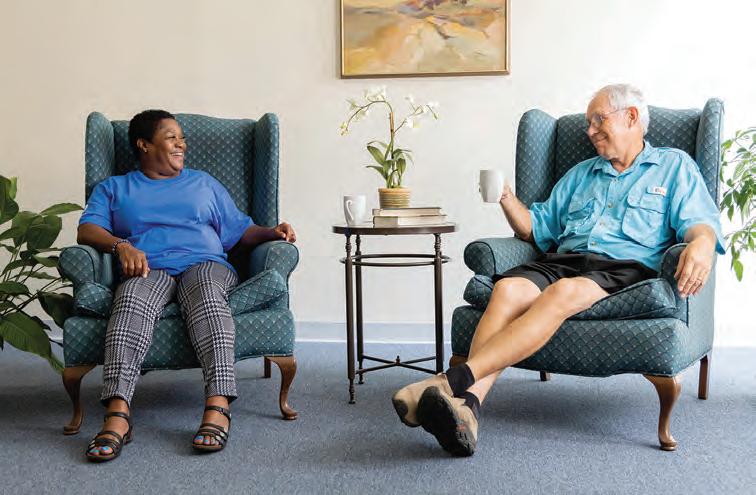
in 2020 – discussing how older adults can combat loneliness is relevant to public health and individual well-being.
Consider volunteering, which is one of the best and most rewarding ways to combat loneliness.
Volunteering combats loneliness
People often volunteer to find a sense of purpose, learn new skills, improve their communities or establish new routines after retiring or becoming empty nesters. For many, making friends through volunteer work is a welcome bonus. The act of volunteering provides proven benefits for older adults.
Forming connections can make all the
difference in a person’s volunteer experience and sense of well-being. People who meet through volunteer work inherently share a common interest and something to bond over. These friendships can carry over outside of volunteer work and lead to bonding over other hobbies and interests.
In addition to making friends with fellow volunteers, many older adults also form relationships with the people they’re serving, especially if those recipients are their peers.
For example, AmeriCorps Seniors is the national service and volunteerism program


in the federal agency of AmeriCorps that connects adults aged 55 and up to local service opportunities that match their interests. Its Senior Companion Program pairs volunteers with other older adults or those with disabilities who need companionship or assistance. Volunteers may help with tasks such as paying bills, shopping or getting companions to appointments. In some cases, volunteers may also provide support and respite for family members caring for loved ones with chronic illnesses.
“We often think of volunteering as ‘giving back,’ but we’ve seen firsthand that it often becomes so much more than that,” said Atalaya Sergi, director of AmeriCorps Seniors. “By spending a few hours each week with another older adult in need of support, our volunteers are not only giving back to others, but they’re adding meaning to their own lives and establishing connections. They’re helping to fight the loneliness epidemic one visit at a time.”
Growing older can come with challenges, but some of those can be minimized with a positive mindset and commitment to remaining connected and engaged — whether with friends, relatives or fellow community members. Fostering relationships is a key ingredient to a healthier and more fulfilling life.
For more information and to find volunteer opportunities near you, visit AmeriCorps.gov/ YourMoment. PJC




















































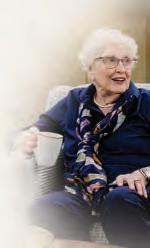

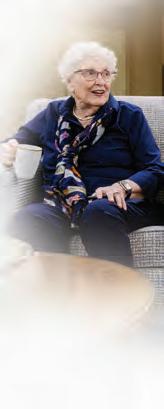
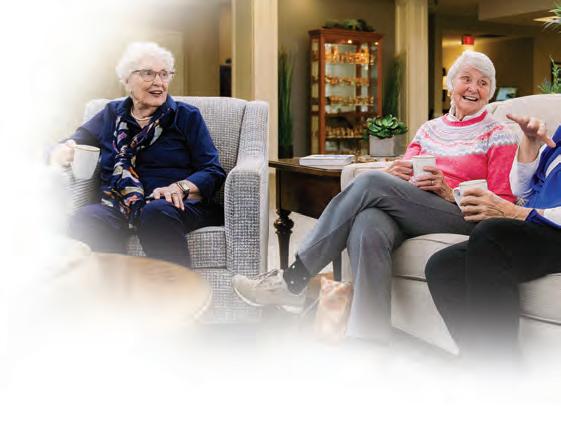

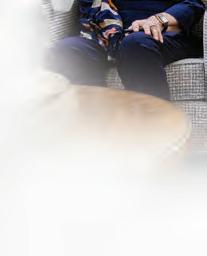

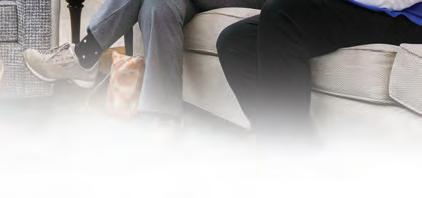



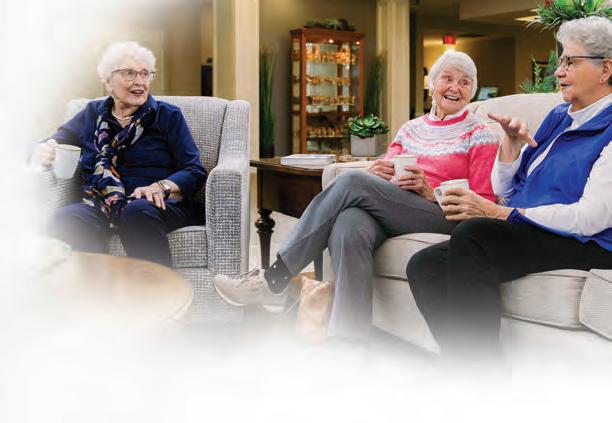
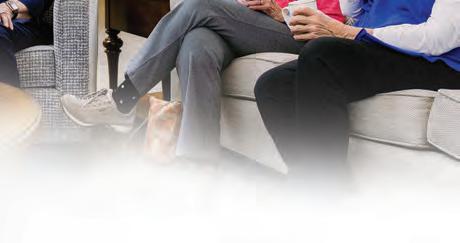
By Family Features
Survivors of heart attacks or strokes may have additional health and personal care needs, often relying on a family member or close friend to help. While caregivers take on a valuable role, they also pay unique physical and emotional tolls.
In fact, a growing body of scientific research shows people who serve as unpaid caregivers may not get the care they need to live longer, healthier lives, according to the American Heart Association, which is celebrating 100 years of lifesaving service.
Caregiving typically involves a range of duties from providing health care services, such as changing bandages and giving medications, to helping with personal needs like bathing, dressing and meal preparation. Administrative tasks like scheduling medical appointments, filing insurance claims and paying household bills may also be necessary.
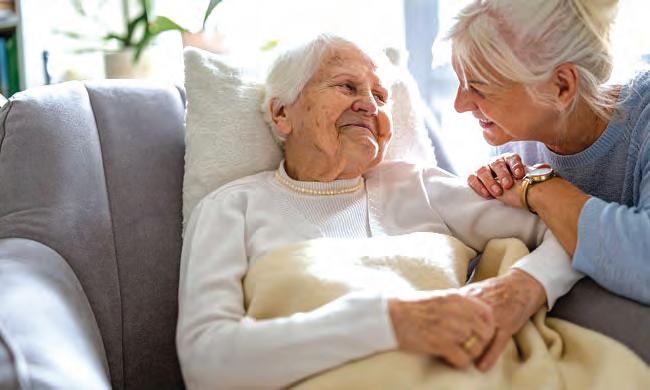
The Centers for Disease Control and Prevention reported 1 in 5 U.S. adults provides some form of regular care or assistance to a family member or friend with a health problem or disability; 58% are women and nearly one-third provide care for at least 20 hours per week.
“The typical caregiver likely has an evergrowing and changing to-do list and most of them probably do not add ‘take care of myself’ to that list,” said American Heart Association volunteer Lisa Kitko, dean of the University of Rochester School of Nursing and vice president of the University of Rochester Medical Center. “While caregiving can be a very rewarding experience, it can also take a huge physical and mental toll on even the strongest person.”
Prioritizing your own physical, mental and
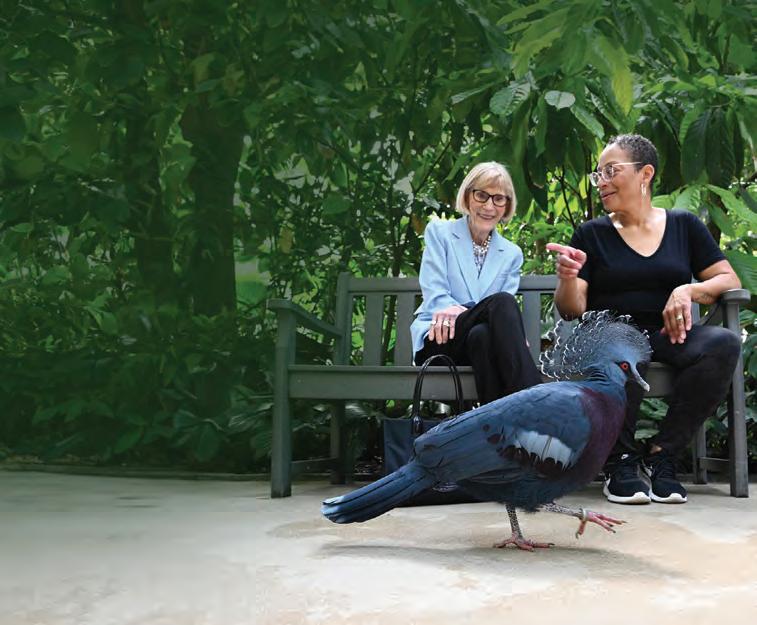
emotional health allows you to better help your loved one, Kitko said. Consider her tips for caregivers to care for themselves:
• Knowledge is power. Learn everything you can about your loved one’s condition.
• Set boundaries. Say “no” when it’s appropriate, don’t dwell on what you can’t change and recognize you’re trying your best.
• Maintain a healthy diet, limit caffeine and get adequate rest.
• Stay current with your own medical and
dental appointments. Inform your health care provider if you’re experiencing any signs of depression.
• Find a support system. Share your feelings with someone who wants to listen or understands what you’re feeling, like the American Heart Association’s online Support Network, which includes a section just for caregivers.
• Nurture your spiritual life and focus on things you’re grateful for each day.
• Make time for yourself and friends. Participate in activities you enjoy, including regular physical activity.
• Be prepared for possible medical emergencies. If you’re caring for someone at risk for heart attack or stroke, recognize the warning signs and call 9-1-1 if he or she experience any. Learn Hands-Only CPR; research shows most out-of-hospital cardiac arrests happen in the home. Be ready to save a life by calling 9-1-1 and pushing hard and fast in the center of the chest.
“‘Take care of yourself so you can take care of others,’ are definitely words to live by for caregivers — everyone tells you that and it certainly makes sense, but it’s hard,” Kitko said. “There is a lot of stress associated with knowing someone is depending on you … That is why taking care of yourself really should be the first item on your caregiver checklist.”
Learn more about caregiving and cardiovascular disease at heart.org. PJC




Veterinarian:
Continued from page 11
gratifying, he said, as in the case of a client who was bitten by a cat in an unprovoked attack.
He followed two local cats that underwent kidney transplants at his alma mater, Penn, and puzzled out the cause of a dermatologic condition in a retired racing greyhound as Sweet’s Syndrome, an exceedingly rare autoimmune disease.
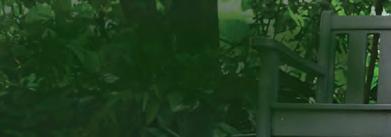

Embrace the fall feeling with the National Aviary’s new, themed season!
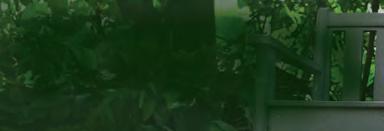


He saved a dog that was hit by a freight train with six hours of reconstructive surgery that included removing an eye.
In a case years ago, he spent two hours surgically extracting an arrow that had been shot into a cat.
“It went from the chest to the abdomen, and had miraculously missed every single vital organ,” Bendix said. “I still have the X-ray on file.”
“The cat had some lameness, too,” Bendix said. “She brought it in to see what was wrong, and I put two and two together and diagnosed rabies. Everyone who’d been exposed, including her family and my staff, had to get shots. I probably saved several lives.”
A key part of veterinary care involves helping owners through a process that is highly emotional, especially when euthanasia is being considered.
Engaging daily activities highlight the fascinating world of forest birds. Visit with your gardening or book club, senior living community, or birder group and explore the National Aviary’s expansive, free-flight habitats at your leisure. You can also opt for an expert-led tour and live immersive bird show opportunities!
Learn more at aviary.org



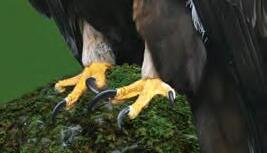




In 2008, he volunteered at Tiger Ranch Cat Sanctuary in Frazer Township, where hundreds of felines were found to be ill and living in horrific conditions during a raid by the Pennsylvania Society for the Prevention of Cruelty to Animals.
“When we heard about it, Diane and I packed up the car with supplies and drove there,” recalled Bendix, whose photo in a Hazmat suit made national news.
Recently, he treated a dog brought to him by a rescue with sarcoptic mange — a severe skin infection — low thyroid and other issues.
“I prescribed treatments and nursed him back to health. He’s now back at the rescue and doing well,” Bendix said.
Veterinary care can be as risky as it is
“I worry about the client as much as the patient,” Bendix said. “Before I recommend putting an animal down I ask myself if there is anything more I can possibly do and then present all of the treatment options so they can make a comfortable decision. When clients ask my honest opinion about how to proceed, I will give it to them. Often the kindest thing you can do when an animal is terminally ill and suffering is to end its life with humaneness and dignity.”
Beeler said Bendix has made the experience bearable when she has had to say goodbye to various pets over the years, including Rico Suave, a Yorkie-Pomeranian she had rescued from a puppy mill.
“Dr. Bendix cried a little with me,” she said. “He’s an angel.” PJC
Deborah Weisberg is a freelance writer living in Pittsburgh.
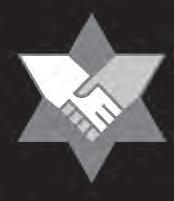
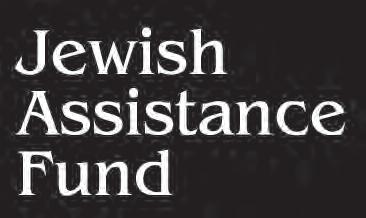

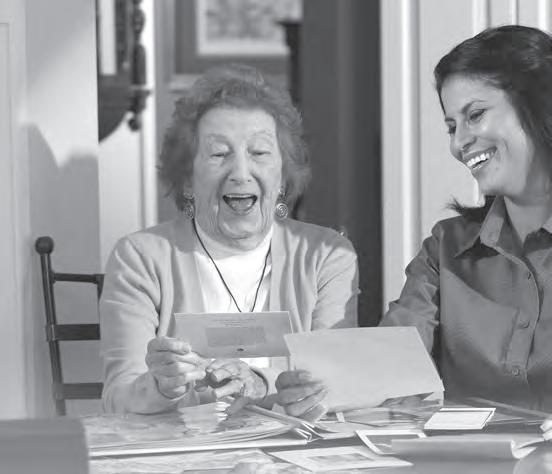

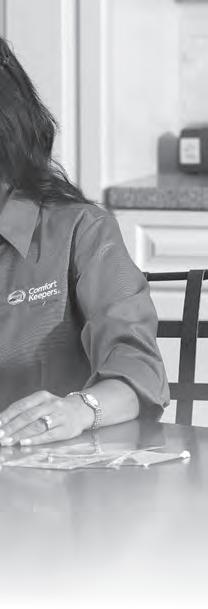
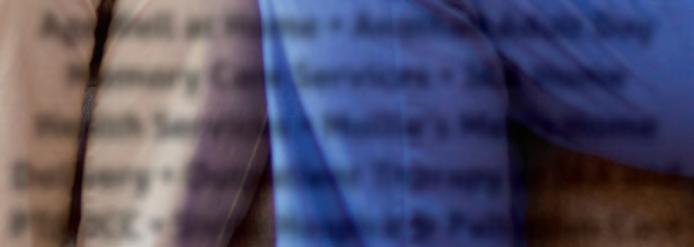
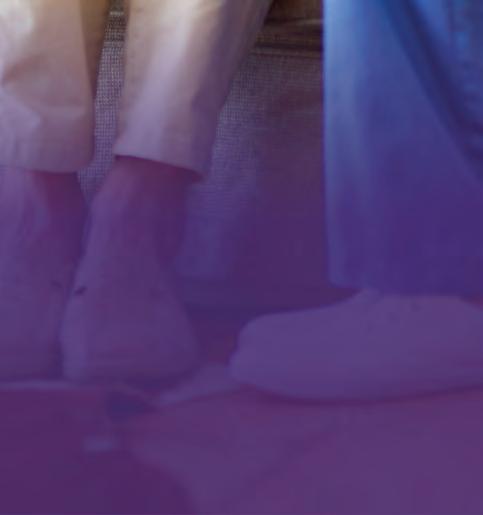



Concert:
Continued from page 1
family set up a yellow piano in Tel Aviv’s Hostages Square. On Aug. 5, the Jewish Community Center in Squirrel Hill installed a yellow piano with the message “You Are Not Alone.”
Jan Levinson, the Pittsburgh Federation’s board chair, has met Idit Ohel twice, once in December and once during the solidarity trip. He described her as a “very brave person” as she, and others, await her son’s return.
“I asked somebody how long the piano would be here, and they didn’t know, but I said, ‘Well, I hope it’s taken down when Alon is free, and I hope it’s tomorrow,’” Levinson said. “And the person said to me, ‘I hope it’s today.’” Idit Ohel told the solidarity group that from the moment her son was born, he loved music. He began playing piano when he was 9. At the concert, a video of him playing piano was paired with a performance of a song written for him by his aunt.
The song translates to “Your Melody” in English and is a direct address to Alon Ohel. The lyrics explain that his family and f riends have hope for his return, ending with the refrain, “Your melody will be played forever.”
Jodi Weisfield kicked off the live performances with the second movement of Beethoven’s “Pathétique Sonata.” Ilana Schwarcz then took the piano for “Adon Olam” and tefilah alongside singing by Jonathan Weinkle and an impassioned audience. Pauline Rovkah played Chopin’s “Nocturne” in C-sharp before turning to an off-theprogram performance.
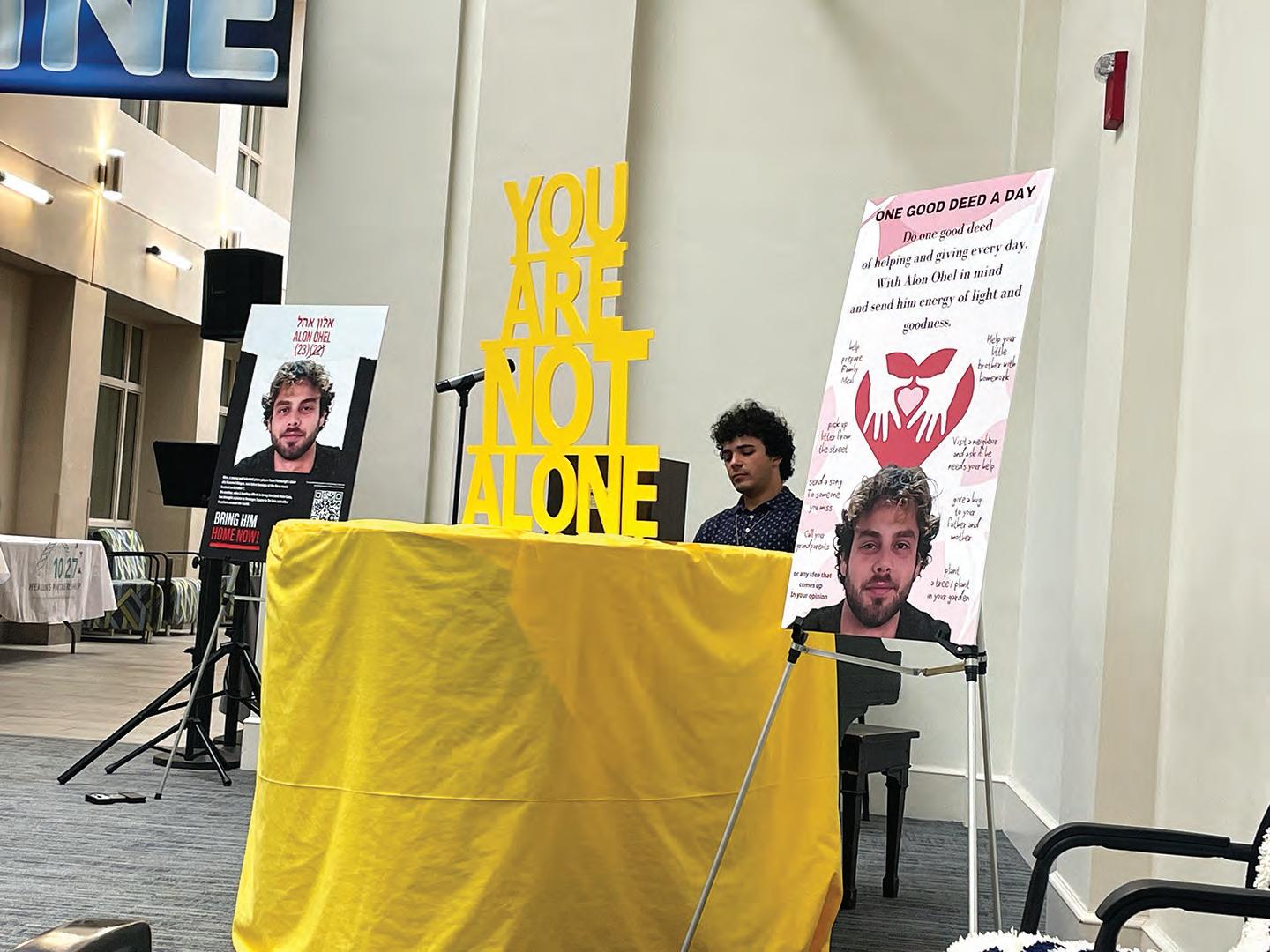
Davis Morgenstern, a 19-year-old rising junior at Yale College, briefly introduced himself before playing Chopin’s “Ballade No.
Schools:
Continued from page 1
“Rabbi Rosenblum and Rabbi Weinberg, we are one team. And I feel that so deeply,” Weiss said.
“Something very unique about Pittsburgh is that the institutions have always had such a healthy respect for one another,” Rabbi Yossi Rosenblum, CEO of Yeshiva Schools of Pittsburgh, said. “It doesn’t mean everything is always perfect, but generally the three schools have worked together.”
Apart from the annual Lag Ba’Omer celebration, reliance on backend software or routine meetings between institutional leaders, there’s a sense of commonality and collaboration among the schools, Rosenblum said.
Hillel Academy of Pittsburgh Principal Rabbi Sam Weinberg agreed.
“It’s a beautiful thing that we all work together and a testament to who we are as a community,” he said.
The three schools are located within about a mile of each other in Squirrel Hill. Walking between the institutions takes less than 30 minutes.
Proximity increases not only the likelihood of interactions but a shared sense of belonging.
“This is a place that is just such a unique community where we all kind of live, and work, and eat and daven, and celebrate and mourn together — way before Oct. 27 (2018),
On Aug. 5, the Jewish Community Center in Squirrel Hill installed a yellow piano with the message “You Are Not Alone.”
his performance, the audience gave a lengthy ovation. In an interview after the concert, Morgenstern said he’s played the piece many times before, but playing for the hostages may have brought more out of him than
way before,” Weiss said. “I just feel like as a child growing up we always joked that we belong to eight shuls, but we really did.”
Each school has a lengthy history: Yeshiva dates to 1941, Hillel to 1947 and CDS to 1972. With multiple generations of Pittsburghers having graduated from the institutions, the day schools remain a pipeline to furthering local Jewish life.
Forces surveillance soldier who was taken hostage into Gaza and recently turned 20.
When her fellow hostage Agam GoldsteinAlmog was released in November, Berger gave her a message for her family.
Berger wished her father a happy birthday.
Non-residents generally view the community as predominantly Jewish, yet feel that this community has the best cultural advantages of any area in the city.”
“Growing up in Squirrel Hill it’s difficult not to feel a level of hakarat hatov (appreciation) toward our institutions and have this innate desire to give back to the community,” Weinberg said.
“It’s a beautiful thing that we all work together and a testament to who we are as a community.”
RABBI SAM WEINBERG
For nearly a century, Squirrel Hill and the East End have been Pittsburgh’s primary Jewish hub, according to the Rauh Jewish History Program & Archives. And continuous existence in a space creates a culture, according to researchers.
In 1963, graduate students from the University of Pittsburgh School of Social Work sought to explain Squirrel Hill’s character and reasons for sustainability.
“ The residents are all very proud of their community,” students wrote. “Most are glad that there are educational programs in the synagogues, and various kinds of programs at I.K.C. (the Jewish Community Center’s precursor) which encourage continuation of traditional practices in the community.
“From the perspective of our schools, their mission is built on history and recognizing the people who came before you,” Rosenblum said. “I remember sitting on the corner of Wightman and Hobart, where the Yeshiva Boys School is now, and I remember when this was a house. I remember Rabbi Posner and Rabbi Rosenfeld doing what they had to do to get it where it is today. I observed my own parents, who taught for a combined 100 years, and saw what it takes to change the life of a student.”
“This is a place that I was raised in, these very walls,” Weiss said of CDS. “My most fond memories as a child were at CDS. I baked hundreds of challahs with my mom for fundraisers for kids to go on an Israel
Once again, the audience joined in, singing the song with Schwarcz and Weinkle. PJC
Abigail Hakas is a freelance writer living in Pittsburgh.
trip. I participated in the Zimriya, where we practiced countless hours learning the dance to ‘Yerushalayim Shel Zahav’ and after that would meet up at Bruster’s Ice Cream. This is where I learned how to run, which is a practice that I do every single morning now. The fact that I get to lead a team of educators to instill those same values and memories into the future generation of the Jewish people is my greatest privilege. I just can’t think of any more sacred duty or meaningful work than this.”
The future of education, Weinberg echoed, is predicated on its past.
“I feel very appreciative for the education I received at Hillel Academy, but more so I want to give back so my children and their children and the children of Pittsburgh can continue to grow and feel inspired,” he said.
While each school is unique, a bond unites its leaders.
“All of us are so committed to raising Pittsburgh Jewish children,” Weiss said. “It’s our shared vision to have every Jewish child in a Jewish day school.”
“The fact that each of us are alums of our respective schools — it’s not only that it’s so Pittsburgh — it’s just a commitment,” she continued. “It’s a shared commitment between the three of us to the future of the Jewish children, to the Jewish children of Pittsburgh.” PJC
Adam Reinherz can be reached at areinherz@pittsburghjewishchronicle.org.
History:
Continued from page 5
economic supercharge. Still, our Jewish community was slow to grow. Feldman noted that Pittsburgh had some 60 Jewish families in the mid-1850s, while Milwaukee had 200. Even by 1880, with the Gilded Age well underway, our Jewish population lagged behind Cincinnati, Louisville, Memphis and Milwaukee — all cities we eventually surpassed.
Continued from page 6
“As an artist,” she said, “I didn’t know what to what to do with these emotions. And then I said, ‘OK, I can draw portraits.’”
She is planning on having the finished portrait of Chen delivered to his family in Israel.
Still, she is careful of what she posts on social media and has blocked some friends in the arts community because of blatantly
Continued from page 7
After returning home, Pinkston ran into a friend who he hadn’t seen since the start of the summer. The interaction was unfortunate, however.
Before encountering each other, he said, the two had argued over Snapchat about “the conflict.”
“I didn’t see him for two months and then the last time I saw him he ignored me,” Pinkston
Feldman cites various causes: rampant nativism in Pittsburgh, internal divides in our Jewish community and a harsh setting. Pittsburgh was a daunting place to live back then. It can be a daunting place to live today, even with the assistance of many bridges, and tunnels, and pavement, and snowplows, and locks, and dams, and retaining walls.
A local journalist once described the city thusly, “Frequent and loud complaints are uttered, both by transient and stationary residents, against the filthy streets, villainous smells, licensed swine and other nuisances,
antisemitic posts. One of those posts was a cartoon depicting an Israel Defense Forces soldier wearing a Nazi armband. Another was a definition of the word “Israeled,” with the following example: “In a restaurant, someone asked to share my table. I agreed. After a moment, he asked me to leave because he has a meeting! I’ve been israeled.”
Negrete said she has not been physically threatened and hasn’t encountered any hostility to art she has posted about Judaism. But, she said, the anti-Israel posts from people
said. But he isn’t making much of the slight.
“I think it’s stupid that some friendships are ending because of politics. I think it’s sad,” he said. “I know for me I wouldn’t let it ruin a friendship. I think connections are more important than worrying about something that’s happening in another part of the world.”
Braslawsce said she couldn’t be prouder of her son.
“Judgment needs to be left at the door in every single way — whether it’s who you’re going with or what they are going to come out of this with — we need to allow people to have
equally hard to ensure, which are so peculiarly the characteristics of Pittsburgh.” The writer proceeded to eloquently mock the city as muddy, smoky, disorganized and lawless before concluding, “With all these crying and trying perils, inconveniences and wants, which daily and nightly beset them, the great majority of our citizens are doggedly contented with their place of abode.” He wrote those words in 1826, and the description only became more apt as the city grew.
Even so, the 18 years between the opening of the Pennsylvania Main Line Canal and
in the arts community “broke my heart.”
Sara didn’t say she was heartbroken. Instead, she said she is “very angry.”
“I’ve been an ally for everyone,” she said. “I understand Black Lives Matter and I’ve never told a Black person what is or isn’t racist. I’m an extremely huge LGBTQ ally, and I’ve never told anyone what is or isn’t homophobic.
And yet I have been told by multiple people of those groups that I’m wrong, and that it’s not antisemitic and it’s not anti-Jewish.
And I can’t understand that. I don’t get why
their own experiences and trust that our kids are old enough to make their own choices,” she said. “I feel like Ben is solid. He can make his own choices and he did.”
Reaching that point didn’t happen by accident, she continued.
“My kids are how they are because of the community they grew up in,” she said. “Being a part of a community is a gift. People here know it.” PJC
Adam Reinherz can be reached at areinherz@pittsburghjewishchronicle.org.






the opening of the Pennsylvania Railroad had several significant markers of Jewish settlement: the first Jewish cemetery, the first synagogue, and the first Jewish families spread across multiple small towns. Those 18 years mark the moment when the experiences of individual Jews expanded into each other to create a Jewish community. PJC
Eric Lidji is the director of the Rauh Jewish Archives at the Heinz History Center. He can be reached at rjarchives@heinzhistorycenter. org or 412-454-6406.
you get to tell me that.”
Sara has not removed herself from the arts community, she said, but she has “pulled back from a lot. I’m not as involved as I was in some of the arts community events because I decided that my sanity was important and I could not argue with these people.”
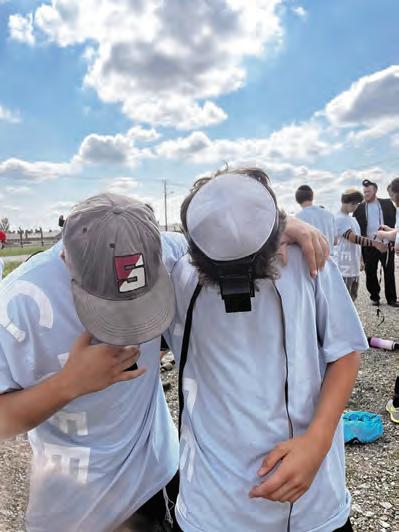
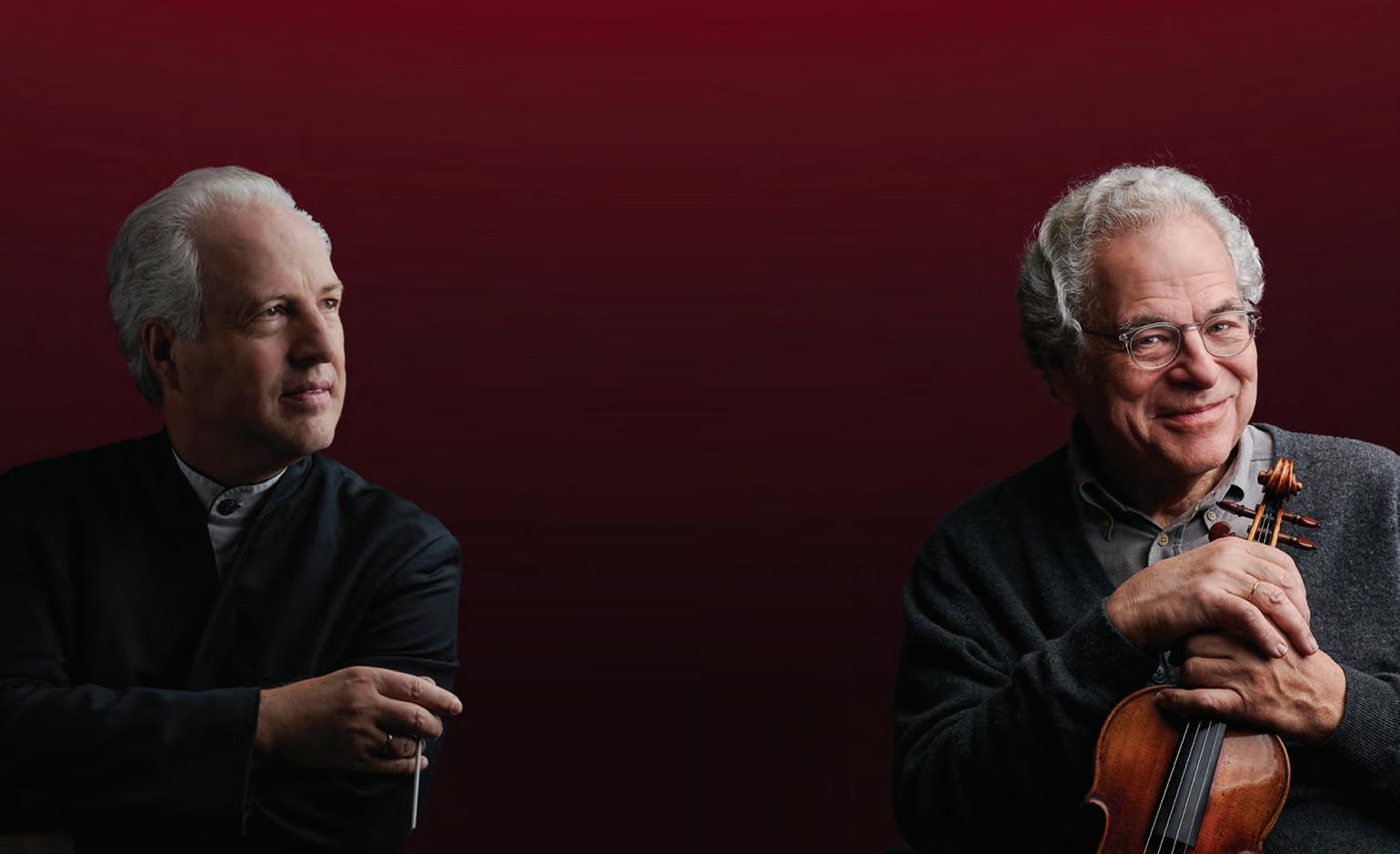
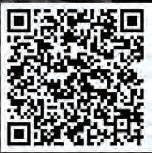
Guest Columnist
Rabbi Andy Bachman
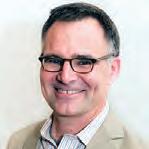
What a crazy week it was. I’m still thinking about what it means that in a Jewish town like New York in a Jewish borough like Brooklyn and in a bookstore, a place that is a touchstone of culture for Jews, a talk between two Jews can get canceled because one of them — yours truly! — is a Zionist.
Alas these are the times we live in and such is the price we are paying for dangerous divisions, hateful and unhinged ignorance, and an atomized popular culture of self-aggrandizing social media feeds that create deafening echoes of saturated sameness. The Gaza war has deepened this already horrendous divide in new and dangerous ways.
God forbid one should show up at a bookstore (or a library or a college classroom) and be challenged to expand their mind in a civil, constructive way — which is what the author Joshua Leifer and I had intended to do last Tuesday night to discuss his brilliant new book, “Tablets Shattered: The End of An American Jewish Century and the Future of Jewish Life,” at Powerhouse Arena in Dumbo, Brooklyn.
Though the bookstore had my bio for weeks; and had it posted on their website for some time; apparently one of the employees decided to Google me, discovered that I was a Zionist, and summarily canceled the talk because, in her view, Zionists ought not to appear on stage at
Powerhouse Arena. This bigoted and self-righteous idiocy hid in plain sight behind the false premise of “unforeseen circumstances” leading to the event’s cancellation that was posted on a sign on the venue’s door. I took a step back and laughed. It was either that, or lose my mind.
For half a day the ownership of Powerhouse Arena hid behind the false story that the author’s publicist had canceled the event until a recording surfaced proving that the store’s employee had taken it upon herself to ban Zionist Jews from the store. She subsequently lost her job and to the owner’s credit, a public apology was issued. Josh and I rescheduled for next week.
But first, after being canceled, we all stood on the sidewalk for a few minutes, getting our wits about us. Josh, family and friends went to a bar for a discussion and drinks; I headed up the hill from Dumbo and sat with my friend Joni Kletter as she tweeted the news out to the world. Within minutes, she received sympathetic messages from former Mayor Bill De Blasio, City Comptroller Brad Lander and Congressmen Ritchie Torres and Dan Goldman among many other friends, colleagues and Jewish professionals. A staffer from Rep. Dan Goldman’s team actually called me from the floor of the Democratic National Convention to express his shock and support, which was pretty cool.
Over the next 48 hours I received texts, emails and Facebook messages from colleagues, friends and strangers from all over the world and across the political spectrum. Censoring a conversation in a bookstore in New York City in 2024? The store employee’s action hit a nerve for everyone — especially anyone who has ever had the experience of learning and expanding one’s heart, mind and soul by reading a book. A foundational pillar of civil society had been violated.
Period. Countless emails and messages included the words, “We may not agree on everything, Andy, but …” Nothing more needed to be said. In those blessed 48 hours I was reminded of many important lessons. One is that there is the greatest strength in difference, not sameness; that there is more learning done in disagreement than there is in the staid uniformity of sloganeering; and that without being made to traverse the rocky terrain of civil discourse, we lose strength, atrophy and weaken as a society.
I learned again that friends matter. I learned again that when you work in a community for 33 years as I have in Brooklyn, you build up the muscle of relationships forged in good times and bad. I learned again that I am so proud to be a Jew, to be a member of a most resilient people, who have persistently modeled to the world that argument is sacred, that argument is, in religious terms, for the Sake of Heaven. If there is purpose to the structure of our lives, in other words, if God demands of us that we find meaning in learning from books, ideas, argument and disagreement — holy and secular — then our learning is better, sharper, and deeper when we create sparks of conflict. I actually feel bad for the bookstore censor. What an intellectually flat world she must live in. What a diminishment of the mind’s potential. It just can’t be very fun to be that way.
There is a story that the historian George Mosse’s students used to tell about the 1960s anti-war protests in Madison, Wisconsin. A number of George’s students were on the New Left and they were angry with him that he — a Jewish refugee from Nazi Germany — was not taking more forceful public stands against the war. Protesting in front of his house one morning and chanting that he was supporting
Guest Columnist
Elchanan Poupko
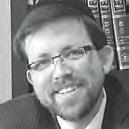
American Jews are winning big time, and it is high time to start talking about that.
While we have faced unprecedented challenges in the past year, on almost every metric possible, American Jews are winning. Not only are American Jews doing well on measurable metrics, but our ability to adapt and fight back against the wave of antisemitism that attempted to overrun us this past year makes a strong case for a bullish future. Let’s begin with the numbers.
Ever since the 1960s, we have been warned about “the vanishing American Jew,” the assimilation that will destroy American Jewry, the Jews you should write off because they will “disappear within two generations.” Well, that didn’t happen. Not only did it not happen, but the number of Jews in America has dramatically increased. With the 2021 Pew Research Center approximating the number of Jews in America at between 7.3 and 7.7 million Jews, American Jewry is the largest it has ever been. The growing number of nearly 1,000 (!)
Jewish day schools in the United States unimaginably exceed the handful of day schools that existed when my grandfather in Pittsburgh needed to build a Jewish day school from scratch in the 1940s. The hundreds of thousands of proud young Jews that will go on to make up the American Jewish community, as well as countless other young Jews who will make up the future of American Jewry, spell a robust and proud future ahead of us. While we cannot ignore the sharply decreasing numbers of Hebrew school students in America, it is important to note the many new forms of engagement for Jewish youth that Chabad and other movements have been implementing.
For those who used sports as a measure of success, an unprecedented 14 American Jewish athletes brought America medals in the 2024 Paris Olympics, 13 American Jewish athletes in Major League Baseball, and 11 Jews in the National Hockey League (which does include Canada) continue to make American Jews proud. Sure, we can do better in the NBA, with Deni Avdija being the only one, but overall, proud American Jews are leaving their mark in sports and continue making us all proud.
We have seen American Jewish life in academia and on college campuses face unprecedented challenges. Waves of hate, intimidation and antisemitism threatened Jewish college life, targeting Hillel houses,
Chabad and Jewish students on campuses across the United States. Yet, we have also seen a new generation of proud American Jews fight back. After enduring the initial shock, young Jews on campuses, on social media and even in schools have begun fighting back, standing proudly for their Judaism.
The symbolism of Ivy League president after president needing to resign for their weak responses to antisemitism sent an important signal to leaders of other academic institutions. The necessary lawsuits and legal complaints, with their consequences, are starting to come in. American Jews are making sure to hold antisemites accountable. It may not be as fast as the antisemites rioting on the streets, but that is how the law works. The long game may find perpetrators behind bars, paying for the harm they caused. Sure, Patrick Dai was able to sow fear among Jewish students at Cornell University with his anonymous online threats, but he is the one who will be spending the next 21 months in an Upstate New York prison, followed by three years of supervised release. Columbia University, which has become a symbol of hostility to Jewish students, has seen donors withdraw hundreds of millions of dollars in donations and a bruised public image. The reports that not a single Ramaz Upper School in Manhattan graduate will be attending Columbia next year, for the first
a fascist regime, George stood out on his drive in bathrobe and pajamas engaging with his students over precisely which kind of fascism was he being accused of supporting? Liberal or conservative? German or Italian or French or Soviet or Spanish? Words and the movements they represent matter. “This course is designed to rid you of your slogans,” George famously taught us. The driveway seminar became legend.
Oh to have the chance to engage this bookstore censor over which particular Zionism she was objecting to. Cultural? Socialist? Liberal? Revisionist? Religious? How much richer our night would have been.
I’ll save for another time the question of what this less-than-24-hour-censorship means in the context of this horrific war between Israelis and Palestinians in Gaza and the West Bank. Without question there is a hideous antisemitism at play in general in the anti-war movement. And there is a hideous and fundamentally immoral othering of Jews who don’t subscribe to the cultlike demand that any Zionism be disavowed in order to exist in the company of the self-proclaimed exemplars of justice, commonality and peace. Some just want us gone.
But I was most deeply impressed with and moved by how quickly people came together from such diverse backgrounds; how vociferously ownership eventually condemned this censorship; and how people buying Josh’s book — to read, debate and argue — became the best response of all. Want to shut up a bigot? Beat them at an argument. PJC
Rabbi Andy Bachman is a rabbi who has led congregations in Brooklyn and Manhattan. A version of this piece originally appeared on Water for Rocks, the author’s Substack. It is reprinted from JTA.
time since 1937, shows what has always been true for Jews: We can take our talents and gifts elsewhere. American Jews are adjusting to a new reality, seeing who our true friends and allies are, fighting back and rethinking the direction of our investments. We are here to stay and will not tolerate discrimination or bigotry.
Legacy Jewish organizations, which have been often criticized, in many cases rightfully, for not taking on antisemitism forcefully enough, have begun taking off the gloves and dealing with the dangers of antisemitism in more direct ways. This process is beginning to show signs of success and must continue to grow.
In the face of the great threats Israel has been facing, and sharing in the Jewish people’s profound concern for the fate of Israel and the hostages, an unprecedented 290,000 Jews stood in the National Mall in Washington, D.C., seamlessly uniting above affiliation and denomination.
In the world of politics, too, American Jewry continues to show relevance and vitality. There are 33 Jewish members of the United States Congress, with a Jew serving for the first time as a Senate majority leader and a Jewish secretary of state. The ugly and antisemitic
Please see Poupko, page 13
Last week, the Chronicle asked its readers in an electronic poll the following question: “Are you following the Democratic National Convention?” Of the 336 people who responded, 77% said yes and 23% said no. Comments were submitted by 86 people. A few follow.
Is anti-Zionism antisemitism?
Nice to see such joy in politics!
Schumer, Shapiro, Emhoff and Pritzker: impressive, visible Jewish leaders and representation.
Both the DNC and the RNC are just posturing and dividing our nation further. They’re both “us against them.”
It is on too late. I just watch the highlights on the news the next day.
I’ll wait to see what comes out of it, and particularly, if the Dems are controlling their antisemitic wokeist extremists. The candidate is less important than the platform.
I’m following the news about anti-Israel protests. Shame on the Democratic party
Poupko:
Continued from page 12
campaign against Pennsylvania’s Gov. Josh Shapiro’s nomination as the Democratic candidate for vice president reminds us of the work ahead of us, which we have shown we can and will do. The unseating of Congressman Jamaal Bowman and Congresswoman Cori Bush gave American Jews a fresh reminder of how much of a difference our votes can make and that if we do see politicians abusing their office to promote bigotry and hate, we must mobilize
Are you following the Democratic National Convention?
becoming a hotbed for antisemitic activity. It really puts American Jewish voters between a rock and a hard place.
It makes me wish the Republican party had put forth a more compelling ticket.
I love the energy!
together and vote them out of office. Jewish infrastructure in life continues to grow. Unprecedented numbers of kosher eating options, kosher travel and kosher restaurants continue to pop up from Pittsburgh to Philadelphia, Los Angeles, New Hampshire, Florida, and, of course, in New York City. Cyberspace helps offer a touch of Jewish life to those living in more remote locations, with online education, music, shipping of Judaica, and remaining connected to loved ones, offering more Jewish life options than we have seen before.
It’s been sensational. Good speeches and a wide variety of speakers, including young and more experienced, and even a few ex-Trump supporters.
I’m very concerned about the lack of explicit support for Israel by the Democrats — and Joe Biden’s statement about the (violent) demonstrators: “They have a point,” he said.
We have a stable of quality potential candidate in the Democratic party. The speeches have been excellent...We need to all vote and WIN.
Every speaker who stepped on stage was fabulous.
When the Democratic party decides to once again be inclusive to Jews, I’ll resume my affiliation. Until then, I shall be an independent.
The convention is a disappointing lovefest without substance. There are two Democratic parties now: the new far left and the traditionals. The convention has been taken over by catering to the far left.
In September, Israeli singer Ishay Ribo will perform for the second time within one year in Madison Square Garden. The 19,500-seat arena in the heart of New York City will once again be filled to capacity with Jews of all denominations celebrating their Judaism together.
American Jewry faces many great challenges in the times ahead of us. Antisemitism, the accessibility of Jewish education, internal divisions and navigating a rapidly changing world will not be simple tasks. Yet one thing has also become clear from the past year:
Our readers are invited to submit poems to the Chronicle’s Poetry Contest. Winning entries will be published in our Oct. 4 issue. The theme is “One year since Oct. 7.”
Three winners will each receive a $54 gift card to Pinsker’s Books and Judaica, supplied by an anonymous donor. All submissions must be received no later than Sept. 20.
Fetterman staffer’s ‘nuanced’ views not so nuanced
It is positively laughable that Carrie Adams, Sen. John Fetterman’s communications director, should insist that her views on Israel are more valid than the senator’s because of her “much more nuanced view of the region.” (“Fetterman spokeswoman tells reporter she doesn’t agree with her boss on Israel, Gaza,” online, August 19). What is truly pathetic is that she attributes those more “nuanced” views to being part of, in her mind, the more insightful “generation” of young people. By now, many of us have seen videos posted online showing reporters interviewing young people at pro-Palestinian rallies, seeking to understand what the protestors actually know about the IsraeliPalestinian conflict. Yes, these reporters are admittedly pro-Israel, but that does nothing to counter the ridiculous responses to questions such as, “What river? What sea?” (responses show protestors’ obvious ignorance of, not only history, but also geography), and, “Do you know Israel hasn’t occupied Gaza since 2005?” The dumbfounded look on the protestors’ faces, the inability to articulate a response and, ultimately, the defiant stances show they have no idea what they are shouting about — nor do they have any intention of learning about the issues.
Simply put, protesting against Israel has become the “in” thing to do, and donning keffiyehs has become the fashion. And, like lemmings they go.
What is even more absurd in Carrie Adams’ actions is that she made a special point of calling the author of the article following his interview with Sen. Fetterman to express those viewpoints. How presumptuous of her to think anyone should care about her views. After all, as the article points out, she is not the one who was elected to serve and represent a constituency.
I love the positive energy of the crowd and the compassion as well as the intelligence of the speakers.
Lies, lies, lies.
As a Trump supporter, I can barely watch, but it’s important to see what “the other side of the aisle” is saying.
It is delightful to see the joy and optimism that was displayed at this event. It stands in stark contrast to the doom and gloom promoted by the opponents.
I’m not sitting glued to the TV set, but I have to say that the spirit of joy and hope that pervades from the DNC is inviting. It feels good and it feels like we are on the right track. PJC
— Compiled by Toby Tabachnick
Chronicle weekly poll question: How many Jewish-themed books have you read in the last year? Go to pittsburghjewish chronicle.org to respond. PJC
We are up to the task. We are ready for every challenge and we are successfully fighting for a future that looks bright, proud, inspired and successful. American Jews are winning and must continue to do exactly that. PJC
Rabbi Elchanan Poupko is a New Englandbased 11th-generation rabbi, teacher and author. He has written “Sacred Days on the Jewish Holidays,” “Poupko on the Parsha” and hundreds of articles. He is the president of EITAN – The American Israeli Jewish Network. This first appeared on The Times of Israel.
Guidelines: Poems must be submitted to newsdesk@ pittsburghjewishchronicle.org. Please type “Poetry Contest” in the subject line. The poem must be in a Microsoft Word file. No PDFs or handwritten entries will be accepted.
• One submission per author.
• Must include the author’s name, address, phone number and email address.
• Poem should reflect the theme of “One year since Oct. 7.”
• Unpublished poems only. PJC
The article concludes by telling us, “Adams has since changed the settings on a social media account to make it less public and only visible to those whom she approves.” And, in so doing, Adams becomes like so many of the youthful cowards who worship social media. She wants only to hear from, and engage with, those who agree with her views.
What a sad state of affairs for our nation if our future lies in the hands of self-important individuals who don’t care to engage in meaningful conversations about important issues because their views are already so “nuanced” they have nothing to learn.
Correction
In the Aug. 23 recipe for rustic blueberry scones, the quantitiy of blueberries was inadvertently omitted. The quantity is 1 cup. PJC
We invite you to submit letters for publication. Letters must include name, address and daytime phone number; addresses and phone numbers will not be published. Letters may not exceed 500 words and may be edited for length and clarity; they cannot be returned. Send letters to: letters@pittsburghjewishchronicle.org or Pittsburgh Jewish Chronicle, 5915 Beacon St., 5th Floor, Pittsburgh, PA 15217 We regret that owing to the volume of correspondence, we cannot reply to every letter.

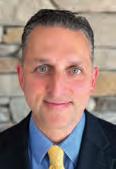

Scott E. Seewald, Chair of the Board
Jason Kunzman, President and CEO
Wednesday, September 4 • 5:30 pm JCC Squirrel Hill • Levinson Hall • 5738 Forbes Avenue
Mazel Tov to Our Awardees
• Sharon Werner Rogal-RuslandeR leadeRship awaRd
• Samuel W. Braver s. J. noven Koach awaRd
• Yisrael Klitsner and Lauren Wasser-Klitsner ida and samuel latteRman volunteeR mitzvah awaRd
• League of Women Voters of Greater Pittsburgh loving Kindness awaRd
• Kathy Jones lillian goldstein senioR adult volunteeR awaRd
• Veronica Garcia caplan-liebeR human Relations awaRd
• Rabbi Elimelech Seidman the pittsbuRgh Jewish chRonicle Jcc volunteeR of the YeaR

By Jessica Grann | Special to the Chronicle
My mother made rhubarb pie every summer. Perhaps it was my childhood palate, but it was always too tart and I didn’t enjoy it until she started to add strawberry jam or fresh strawberries. It became one of my favorite desserts.
The recipe is versatile because the compote is pareve. It’s also simple to prepare — you just combine the ingredients in a pot and let them simmer for about a half-hour. It tastes like something you spent hours on but without the fussiness of preparing a fruit coulis.
My favorite way to serve it is warm, over vanilla ice cream (you can choose nondairy ice cream), and sprinkled with an oat topping for a bit of crunch and texture.
This is also excellent added to plain whole Greek yogurt at breakfast, and although it’s a little soft, I use it as jam — I smeared a dollop over a crepe the other night and it was scrumptious. Using fresh, in-season produce always makes everything more flavorful.
Every bite of this compote takes me back to simple childhood summers; it’s like sunshine in every bite!
For the compote:
3 cups rhubarb, sliced into 1-inch pieces (about 5 large stalks)
3 cups fresh strawberries, hulled and quartered lengthwise
¾-1 cup sugar
Juice from half of a lemon
For the oat topping:
1 cup oats
3 tablespoons butter or margarine
¼ cup light brown sugar, lightly packed
A pinch of sea salt
The evening will conclude with a reception in Palm Court.
Wash the rhubarb and strawberries.
Trim the ends off the rhubarb and cut into 1-inch pieces, which will make about three cups.
Hull the strawberries and cut them into quarters lengthwise.
Add the fruit, sugar and lemon juice to
a medium-sized saucepan and bring to a gentle boil over medium heat, stirring every few minutes. It will take between five and 10 minutes for the sugar to dissolve and for the strawberries to soften — the rhubarb will still look firm at this point.
Reduce the heat to medium-low and simmer for 15 minutes.
Start with ¾ cup of sugar and taste it after 15 minutes. If it needs a little more sw eetness, add another ¼ cup and continue cooking the compote on low for another 15 minutes.
After 30 minutes of cooking, the rhubarb should be broken down and the consistency should look like a thick, warm jam. Keep in mind that a full cup of sugar will not only add more sweetness, but also thickens the compote. You can add less sugar if that works best for you.
While the compote is cooking, set your oven to 350 F and melt the butter for the oats over low heat in a small saucepan. Once the butter is fully melted, stir in the brown sugar and cook for a minute or two, until the sugar is dissolved.
Remove the pan from heat and stir in the oats until they are well coated in the butter and sugar mixture.
Spread the oats over a small baking sheet, sprinkle with a small pinch of sea salt and bake for 10 minutes, stirring once halfway through.
Remove from the oven and allow to cool on the sheet pan.
You can make this in advance and it will last for a couple of weeks in the fridge if it’s sealed well. I pour it into a sanitized Mason jar while it’s still pretty warm and put the lid on. This isn’t a shelfstable way of canning, but the jar will seal if you allow the jar to cool completely on the counter.
I like to warm this up before serving to “hot fudge” or “caramel-level” warm; it should not be so hot that it turns the ice cream into a puddle.
This makes about three cups of compote. I usually serve about 2-3 tablespoons per dessert, and about a tablespoon of cold compote into a half-cup of yogurt, sprinkled with the oat topping. Enjoy and bless your hands! PJC
Jessica Grann is a home chef living in Pittsburgh.
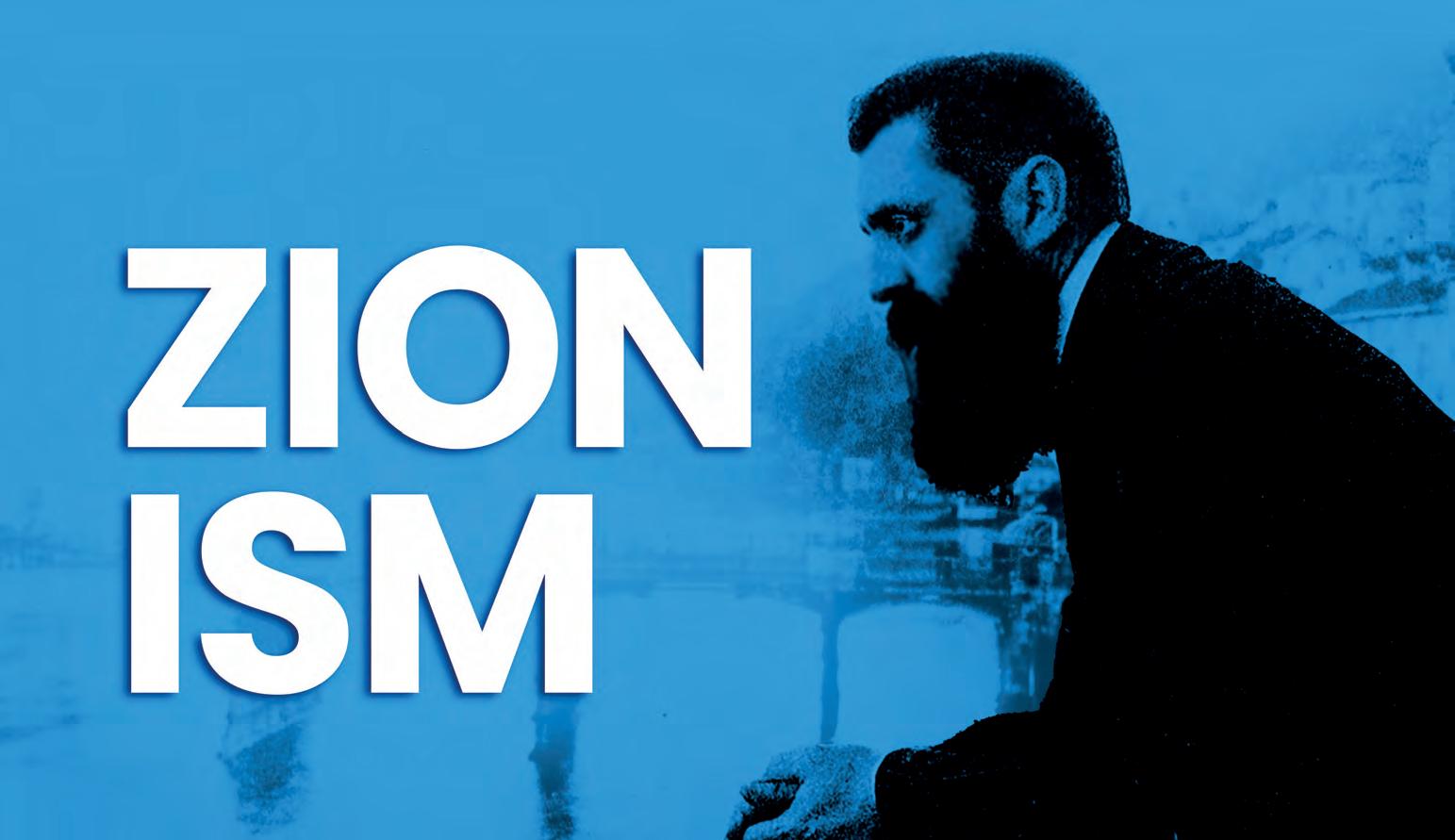
With Federation Gefsky Community Scholar Rabbi Danny Schiff
FALL CLASSES:
• Early Prophets
• Ten Pathways
• Understanding Zionism: What It Is and How We Got Here
• Global Jewry One Year Later
CONTINUING
• Pray It Forward: God, Gratitude and Gathering Together
• Rashi: The Greatest Commentator of Jewish History
• JewsAndWords
QUESTIONS? Contact Ilana Schwarcz at learning@jfedpgh.org or 412-992-5233.
Underwritten by the Alan Papernick Educational Institute Endowment Fund.
• Immigration From a Jewish Law Perspective
• Halloween, Yoga and Seances: The Legal Boundary Between Forbidden Practices and Harmless Activities
• Legalizing Cannabis: Is It Jewishly Acceptable?
Classes are generously supported by the Elaine Belle Krasik Fund for Adult Education. Full inclusion is a core value of Jewish Pittsburgh. The Jewish Federation welcomes invitees of all abilities, backgrounds, races, religious affiliations, sexual orientations and gender identities. Please discuss accessibility accommodations with Ilana Schwarcz at learning@jfedpgh.org or 412-992-5233.

• Understanding the Structure of Jewish Legal Texts
• Jewish Law in the Legal System of Israel
• War Ethics in the Jewish Legal Tradition
QUESTIONS? Contact Patti Dziekan at pdziekan@jfedpgh.org or 412-992-5221.

jewishpgh.org/explore/learning

Samuel Benjamin Noah Ettinger, son of Anna and Jared Ettinger, will become a bar mitzvah at Adat Shalom during Shabbat morning services on Saturday, Aug. 31, 2024. His proud grandparents are Zelda Ettinger, Joel Ettinger, George Falkenstern and Sharon Falkenstern.
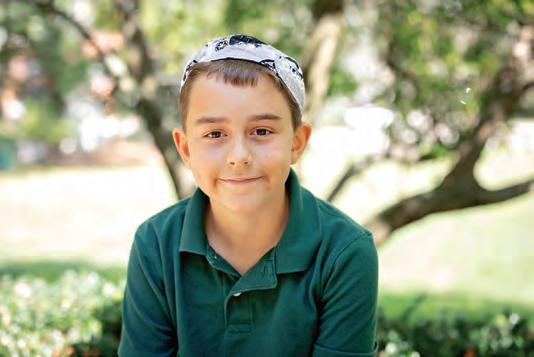
Theo William Finer will be called to the Torah as a bar mitzvah on Aug. 31, 2024, at Congregation Beth Shalom. Theo is the son of Bryna Siegel Finer and David Finer. He is the grandson of Marcia and Howard Siegel (Pittsburgh) and the late Sheila and Carl Finer z”l. Theo is a student at Community Day School, where he enjoys math, science, playing on the ultimate frisbee team, serving on student council and participating in the school musical. As a burgeoning young chef, he volunteers regularly at Our Giving Kitchen. He loves video games, playing guitar, hanging out with his friends and his golden retriever. PJC

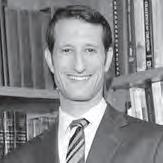
11:26–16:17
As we proceed deeper into Devarim/ Deuteronomy and head toward the dramatic holiday cycle of Tishrei, there is no question that 5784 has been an unusually challenging year for the Jews. As I am writing this in mid-August, it seems unlikely that this situation will change soon.
Parashat Re’eh, a wide-ranging parashah including some of the most essential mitzvot of the Torah, opens by highlighting our powers of discernment. The first word, re’eh, literally the singular imperative “See!”, tells us not only that we should be cautious about following the mitzvot, about choosing the blessings which God has set before us, but also suggests something much more expansive.
See! Look to the future, which depends heavily upon our actions today.
See! Watch the trends of society, of government, of the actions of our potential foes. Be aware of where the Jews are headed as a people, and particularly a people dispersed among other nations. Ibn Ezra, in his commentary on the word re’eh, tells us, “Pay good attention so that you will not be like the nations of the world who relate to everything half-heartedly.” We cannot afford to be half-hearted; our millennia of resilience have depended on our commitment to the truth.
See! Have the foresight to discern what is happening right now, and to be prepared to take action in the future. This is the suggestion of Rabbi Shim’on in Pirkei Avot 2:9, when prompted by his teacher Rabbi Yohanan ben Zakkai to determine the most righteous human attribute.
See! Observe the language used around you carefully and parse the language around you, because words matter, and
public discourse matters.
A federal judge in California recently ruled that UCLA must prevent anti-Israel protesters from blocking Jewish students’ access to university buildings and classes. Such a ruling might seem obvious — the whole point of enrolling in university is to go to class to learn, and the university should protect students’ rights to do so in safety. But the university fought against the ruling, arguing that while it is “committed to fostering a campus culture where everyone feels welcome and free from intimidation, discrimination, and harassment,” it was not responsible for the behavior of the protesters.
This approach seems frustratingly consistent with other universities and municipalities who, wary of violating First Amendment rights or of angering progressive allies, have tried to please all parties. But in doing so, they forfeit protection of the Jews: of Jewish students’ ability to learn without persecution, of Jewish citizens’ rights to live in peace, unmolested by threatening protesters and antisemitic graffiti.
As the parent of a rising senior at Allderdice, I have visited a number of university campuses in recent months. And in such a fraught moment, my nostalgia for my own college years and my respect for academia are bumping up against my very real anxiety about what my daughter might face when she arrives on campus a year from now.
We certainly cannot see into the future. But our tradition mandates discernment, and understanding that the others around us may not always place the safety of the Jews first. And we should be acting with foresight to make sure that our rights, our lives, our interests remain protected. PJC
Rabbi Seth Adelson is senior rabbi at Congregation Beth Shalom. This column is a service of the Greater Pittsburgh Jewish Clergy Association.


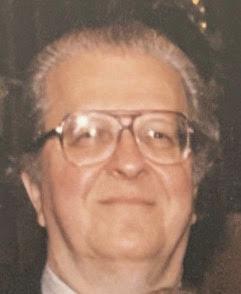
BECK: Irvin Beck, age 92, of Delray Beach, Florida, formerly Mt. Lebanon, Pennsylvania. Irv was the owner of Daniels Discount Hardware and Appliances in South Park, Pennsylvania, from 1956-2007. He retired after selling the business to his daughter and son-in-law. He died at home, peacefully, surrounded by his wife and four children. Husband of 73 years to loving wife, Marilyn Beck. Father of William Beck (late Darlene Beck), Stephen Beck (fiancée late Randi Silverman), Kenneth Beck (Tara Beck) and Randi Whaley (Martin Whaley). He was preceded in death by his parents, William and Rose Beck; brothers, Abraham Horowitz and Joseph Horowitz; and sister Beverly Pattak. He is also survived by 11 grandchildren, 15 great-grandchildren and many nieces and nephews. Special thanks to caregivers Delroy, Nerissa, Owen and Olive for their loving kindness and care. Services were held at Ralph Schugar Chapel. Interment Ahavath Achim Cemetery, Kennedy Township. schugar.com
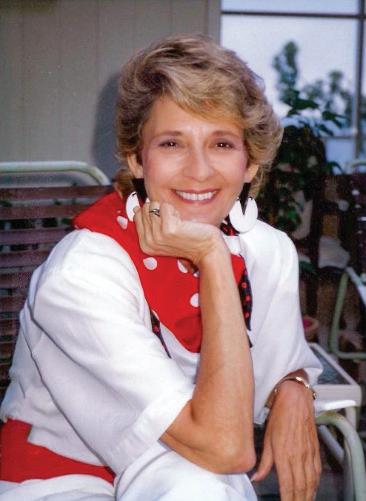
BERG: Betty Berg was a caring wife, mother, grandmother, aunt and friend. She died on July 18, 2024, at 89 years old. Betty dedicated herself to raising her three children in Mt. Lebanon, Pennsylvania: Deb, Jim and Tom. She often shared her favorite advice, encouraging them to always “be kind” and to “do for others.” Betty’s love for children also led her to foster 30 newborns through Catholic Charities, providing them with a nurturing home during their first months of life. She shared 25 joyous years with her second husband, William Miller (Mark, Rob, Peter). She is survived by her children; three grandchildren, Jakob, Marisa and Joshua; one great-grandchild, Lillian; and her former husband, George Berg MD. Betty will be remembered for her compassion, empathy and wonderful sense of humor. Betty’s dedication to charity and love for children can be honored through donations to the savethechildren.org.
Richard H. “Dick” Judd. On Sunday, Aug. 25, 2024. Beloved husband of Rhoda Marks Judd. Loving father of Jordan and grandfather of Emma. Cherished son of the late Sidney Judd and Lillian Judd Grobstein. As a graduate of the University of Pittsburgh, Richard worked as a chemist, then found a meaningful career as a supervisor with the Pennsylvania Department of Welfare. He was proud to have been a youth advisor to the “nicest group of boys” through Gateway AZA. Richard was also a proud Army veteran, having served as military police; he was stationed in Germany, traveled across Europe and toured the Middle East. Richard spent many years volunteering in the Jewish community, first for Poale Zedeck Congregation, which his family helped found, and then as a member of Congregation Beth Shalom. Most importantly, Richard loved his family. Graveside service and interment were held at Beth Shalom Cemetery. In lieu of flowers, contributions may be made to the charity of one’s choice. Arrangements entrusted to Ralph Schugar Chapel, Inc. schugar.com
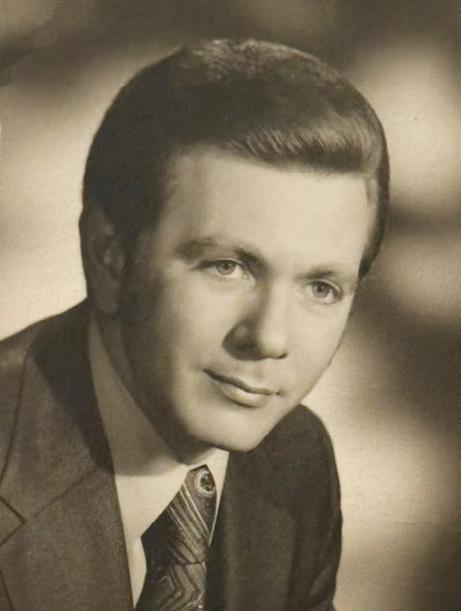
LENENBERG: Sander “Sandy” Lenenberg. On Tuesday, Aug. 20, 2024, Sandy Lenenberg passed away peacefully in Pittsburgh. Sandy was born Nov. 15, 1937, in Pittsburgh, to the late Michael and Florence Lenenberg. He was a 1955 graduate of Thomas A. DeVilbiss High School in Toledo, Ohio. He faithfully served in the Active Duty Army Reserves receiving an honorable discharge in 1965. In 1968, Sandy began his life insurance career spanning 31 years as a general agent with The Great-West Life Assurance Company. He was active in several industry associations, was a life and qualifying member of the Million Dollar Round Table, and a charter member of the Top of The Table and the International Insurance Forum. Sandy is survived by his beloved wife of 40 years, Mimi F. Lenenberg (née Locker); son Jack L. Lenenberg (Cindi) of Alpharetta, Georgia; sisters Rene L. Levy (Louis) of Paulding, Ohio, and Linda G. Talb (Eric) of Leawood, Kansas; grandsons David M. Lenenberg and Jordan S. Lenenberg of Alpharetta, Georgia; and many cousins, nieces and nephews. In lieu of flowers, our family would be grateful for donations to the Parkinson’s Foundation (parkinson.org/donate), which aims to improve care and advance research toward a cure for Parkinson’s disease. Arrangements entrusted to Ralph Schugar Chapel, Inc. schugar.com
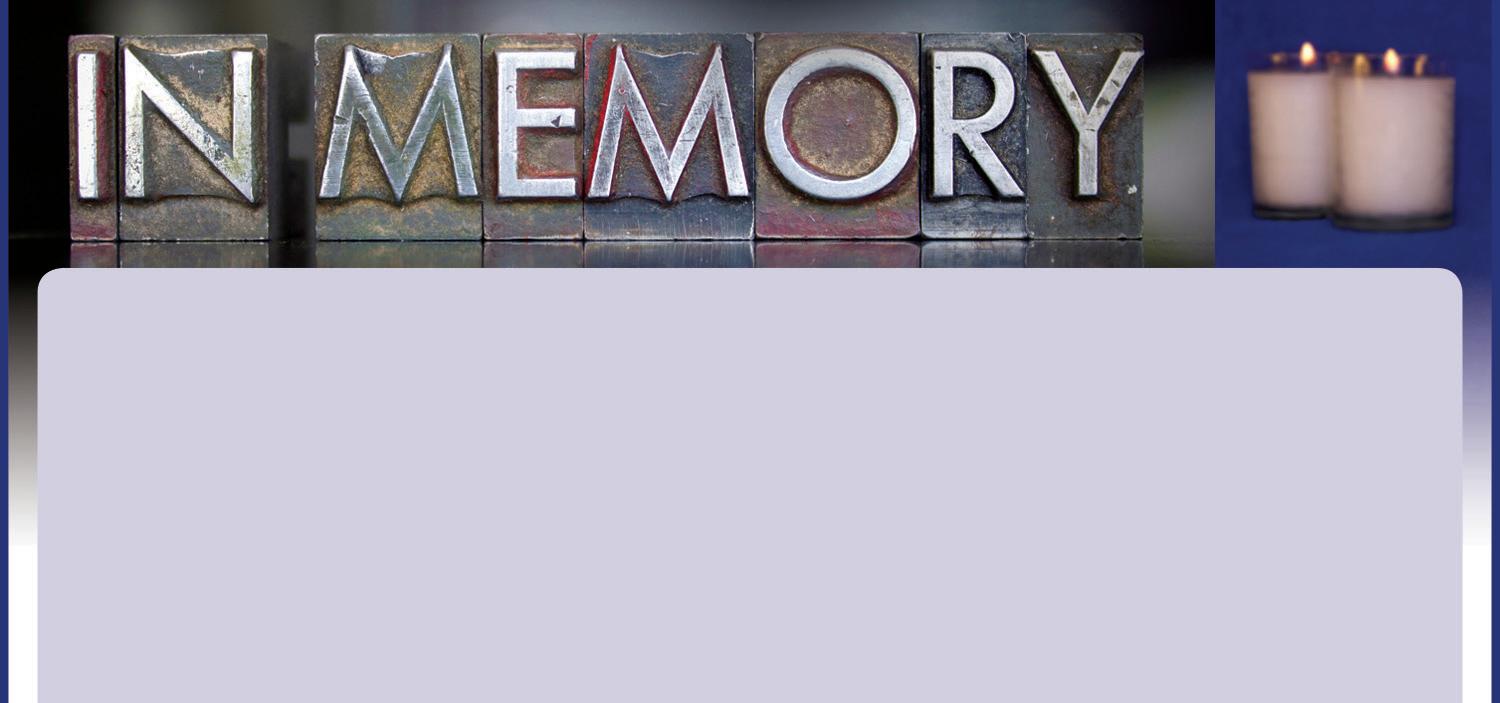
Jeffrey
Joel
Dr
Please see Obituaries, page 24 Jewish Association on
Advertising Trust Termination due to the death of Shirley P. Sacks on 05/24/2024.
Claims against said Trust may be filed as follows and sent to: PNC Bank, National Association
Attn: Sharon L Whitney
300 Fifth Ave, 31st Floor Pittsburgh, PA 15222
And/or: Joel Pfeffer, Esq.
Meyer Unkovic & Scott LLP
535 Smithfield St. #1300 Pittsburgh, PA 15222
Reisner and
Sunday September 1: Hazel R Dickler, Sam Garfinkel, Samuel Goldenson, Philip Goodman, Abraham Katz, Samuel Krasik, Jack Morris, Abraham S Robins, Albert Shapiro, Fay Oppenheim Stein, Mollie E Swartz, Fannie Cohen Weiner, Saul H Weissman, Myers L Zacks
Monday September 2: Ruth E Bell, Esther Streng Finegold, Harry Gottesman, Eugene I Hilsenrath, Frank Kress, William S Mason, Rosa Perlstein, Dorothy Miller Ryave, Gertrude Siegel, Lillian Linder Silverman, Frank Solomon
Tuesday September 3: Judge Samuel J Feigus, Sherman Hershman, Stuart Irwin Holtzman, Joseph Kossis, Celia S Landay, Simon Miller, Peter Michael Oresick, Ruth Pattak, Morris Rosen, Ann F Schwartz, Benjamin Schwartz, Isadore Louis Sigal, Dorothy B Solomon, Harry M Solomon, Bessie Stein, Maurice Louis Swartz
Wednesday September 4: David Bass, Gertrude Chotiner, Leopold Diamond, Louis Farber, Sadie Friedlander, Louis Friedman, Milton S Gordon, MD, Rose Grace Halpern, Alihu Klein, Raschel (Ray) Levine, Anna Rabinovitz, Hinda Kuhl Rubenstein, Alisa Snider Chotiner, Samuel Verbin, Adolph Wirtzman
Thursday September 5: Joseph Cooper, Max Eger, Louis Eisenfeld, Meyer Fiman, Pearl Greenfield, Abraham Pittler, Charles Shapiro
Friday September 6: Sarah Americus, Alan Herbert Azen, Annie Berezin, Samuel Berger, Isadore A Bernstein, Susan Dickter, Rebecca L Guttman, Anne Harris, Mary Garson Mazer, Marie G Mundel, Louis Rosenbloom, Eli Spokane, Morris Toig, Louis Whiteman
Saturday September 7: William Americus, Tillie Bennett, Samuel W Berk, Zelda Glantz Chasick, Alex Glantz, Howard W Jacobson, Mollie Kurtz, Sara Melnick, Sharon Lee Morton, Milton Moskovitz, David Pearlstein, Rose Rom, Alex Ruben, Fannie Shapiro, Leo Spiegle, Harry Treelisky, Louise Ziskind


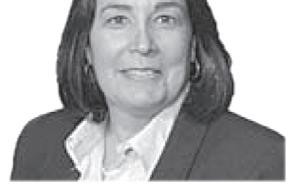












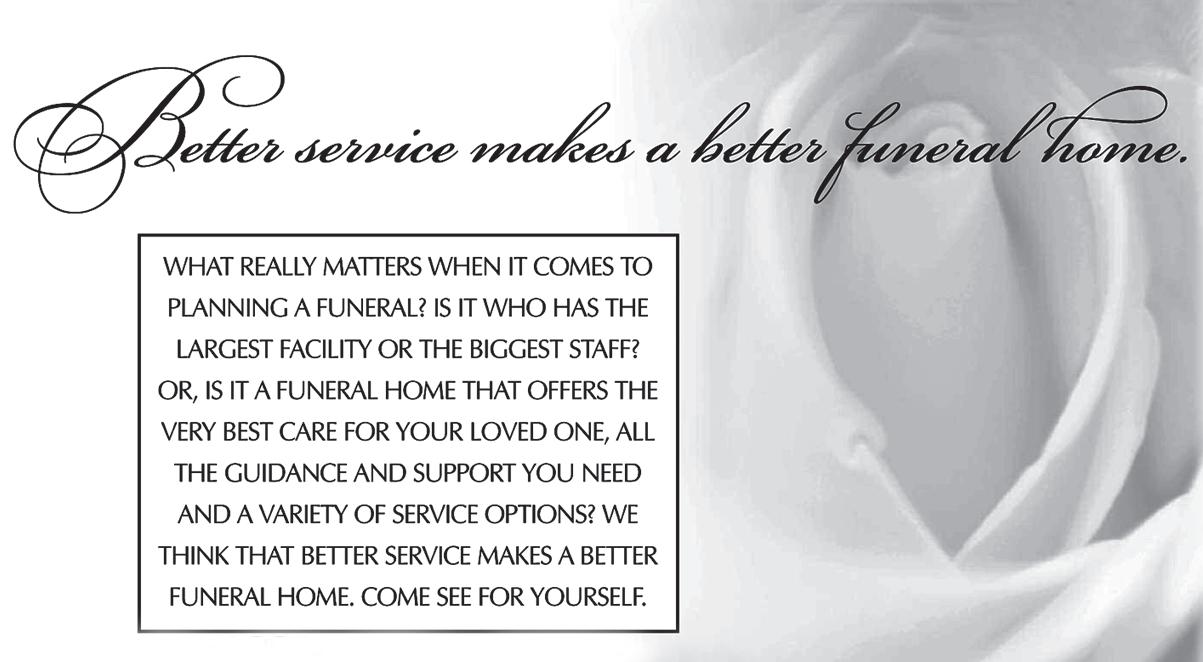

Obituaries:
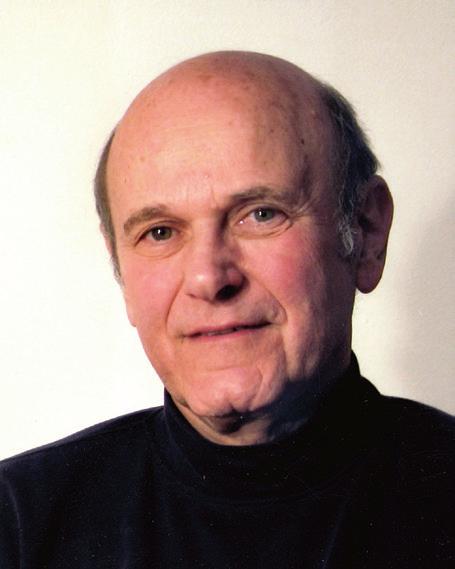
Continued from page 23
STANGER: Robert Henry Stanger, MD, May 19, 1937 – Aug. 21, 2024. Dr. Robert H. Stanger, 87, passed away in his sleep on Aug. 21, after a long battle with Alzheimer’s disease. He is survived by his beloved wife of 64 years, Andrea Stanger, his loving children Lee-Ann StangerNelson (Les Nelson) of Johnson City, Tennessee, and David Stanger (Susheela Nemani-Stanger) of Squirrel Hill, and his grandchildren, Angelina Nelson and Ravi Stanger. Born in Williamsburg, Brooklyn, to Sidney and Mary Stanger, he later moved to Queens Village and attended Stuyvesant High School. He majored in English literature at Guilford College, where he first met his wife, Andrea Rogin (Stanger), who, to everyone’s surprise, also hailed from Queens, New York. Robert went on to earn his MD at Emory University in 1964 and completed his internship in neurology at Bowman Gray School of
Medicine. He served as a US Army captain and preventive medicine officer in Vietnam. His experiences during those challenging years solidified his commitment to helping others heal from trauma and fueled his lifelong dedication to the practice of psychiatry. Dr. Stanger completed his residency in general psychiatry at the University of Pittsburgh School of Medicine, where he later taught as a clinical assistant professor. He established his private practice in general psychiatry in 1970 and was director of Psychiatric Services and chairman of the Department of Psychiatry at Allegheny Valley Hospital. Additionally, he was affiliated with Western Psychiatric Institute and Clinic, Citizens General and Forbes hospitals. A strong advocate for the field of mental health, Dr. Stanger was an active executive member of both the Pittsburgh and Pennsylvania Psychiatric Societies and served as a delegate to the American Psychiatric Association. He and his family have been active members of Temple David in Monroeville since 1977. A lover of all animals, he found solace in nature, often taking long walks with his chocolate Lab, Buddy, who was his constant companion in recent years. He leaves behind a legacy of love, compassion and healing. He will be deeply missed by those who were touched by his kindness and acts of service. Memorial contributions may be made to the Alzheimer’s Association at alz.org. PJC
This year’s Burning Man to feature massive tribute to the Nova festival victims and their spirit
By Jacob Gurvis | JTA
At 6:29 a.m. on Oct. 7, the Supernova music festival in Israel came to a screeching halt as Hamas terrorists attacked, killing roughly 400 attendees, taking dozens of hostages and launching a bloody massacre across southern Israel.
Next month, attendees of another desert festival for free-spirited music lovers plan to pause one day at 6:29 a.m. to honor the Nova victims and their memory.
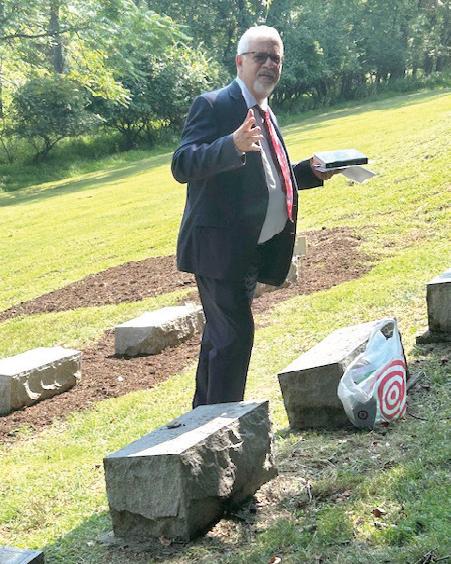
This year’s Burning Man, the festival that draws 70,000 people annually to Nevada’s Black Rock Desert, will feature an installation and events that aim to bring to life the Nova community’s rallying cry: “We will dance again.”
Burning Man begins Sunday and runs through Sept. 2. Already, members of the “Nova Heaven” team, in addition to planning the early morning commemoration, have begun constructing elements of an installation that is to feature a replica of the multi-colored tent that stood at the heart of the Nova festival and has since appeared in the Nova exhibit that has
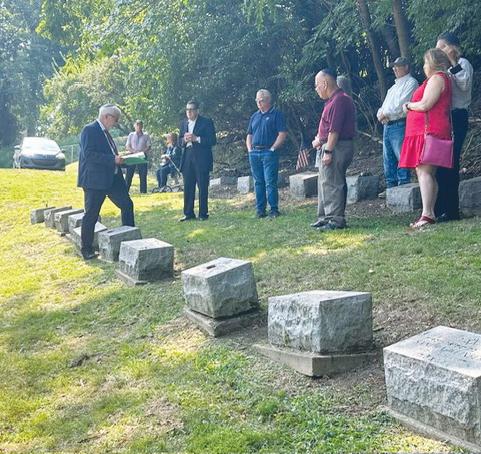
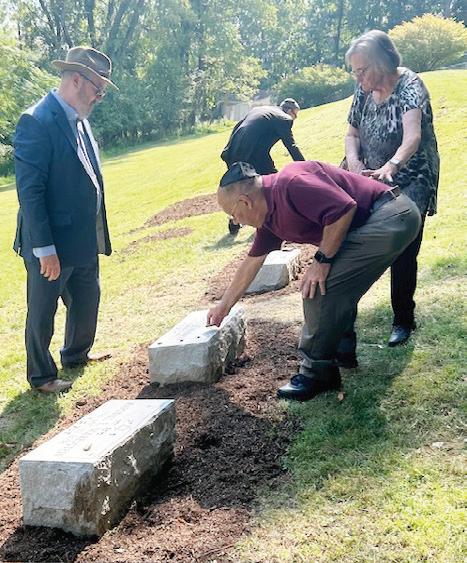
Dear Friends of the JCBA and Community Members,
New Chesed Shel Eme th C eme ter y
The Staff and Board of Directors of the Jewish Cemetery & Burial Association of Greater Pittsburgh extends our deepest gratitude to each of you who joined us for the Community Unveiling on Sunday, August 25th at Chesed Shel Emeth Cemetery to honor those who were laid to rest in the last year. Your presence was a powerful reminder of the strength and unity of our community and the importance of this great mitzvah. You helped to honor the memories of those who may not have had family members to do so and those who can never repay or say thank you.
We are grateful for our partners in our burials at Chesed Shel Emeth, including Ralph Schugar Chapel, Urbach Memorials, Rabbi Seidman, and our generous donors.
is eld of graves, established in 1913 in Shaler Township when Old Chesed Shel Emeth ran out of space, demonstrates our sacred mission to bury the indigent. In addition, four separate burials of damaged prayer books and other sacred texts, a service provided to the community by the JCBA, were held in 2007, 2013, 2018, and 2021.
The Jewish Cemetery & Burial Association is the community’s response to a vital need—providing dignified burials to Jews in need and preserving Jewish cemeteries in accordance with our laws and customs. For more information, please visit our website at www.jcbapgh.org, email us at office@jcba.org or call the JCBA at 412-553-6469.
If you would like more information on free burial in Chesed Shel Emeth for those who are indigent, please contact us at the information provided below.


been on display in Tel Aviv, New York and now Los Angeles.
Nova Heaven will also feature a large gateshaped art piece with the “We Will Dance Again” motto, along with 405 laser-cut angels to represent the Nova victims and a spiral staircase with 100 English and Hebrew messages including “love conquers all” and “compassion unites us.”
Organizers have arranged for several of Burning Man’s famous “art cars,” including a fire-breathing dragon and an illuminated zeppelin, to swing by their home base on the desert landscape, known among aficionados as “the Playa.” They have also set up a series of events framed around the motif of angels and “dancing again,” including sets from Israeli DJs, music from handpan musician Noah Katz and “healing sound experiences,” such as a gong performance from David Shemesh.

Nova Heaven’s organizers include producers of the original Israeli music festival; leaders of the Tribe of Nova Foundation set up to support survivors and spread their message, and longtime “Burners” who understand the power of the desert experience.
“To us, ‘Nova Heaven’ is a testament to the resilience of the human spirit in the face of profound loss,” the organizers wrote on a GoFundMe page where they have raised nearly $100,000 toward a projected bill of $130,000.
“It is a space where participants can connect with memories of those lost, find solace, and draw strength from shared experiences,” they wrote. “This installation is a message of hope and resilience, reminding us all that the human spirit can prevail even in the darkest times.”
The installation’s presence at Burning Man is notable because survivors of the Nova massacre, which some compared to the Holocaust, have expressed frustration that the global trance scene has not more forcefully denounced what happened in Israel.
The group appears to have taken steps to prevent any vandalism or protest of the type that has taken place against some Israelis in
the United States since Oct. 7 and the ensuing war in Gaza. The group says it has recruited dozens of “Guardians” who watch over the installation in six-hour shifts around the clock to “ensure meaningful connections are made to the art piece.”
Some of the artists participating in the build — Burning Man famously requires participants to pack in and remove all elements of their installations — have ties to the Israeli trance scene.
Shahar Peter, who created the phrases for the staircase piece, for example, was born and raised in Sderot, which was attacked on Oct. 7, and himself was attending a different nature festival in the region on Oct. 7.
Peter has previously attended Burning Man, as have many of the people who are participating in the Nova Heaven installation. The festival has long hosted varieties of ecstatic Jewish experience, including Shabbat services.
“For those who know me, you know how deeply Burning Man is woven into my life. It’s where I married my love, where I was pregnant with my first daughter, and this will be my seventh time returning to the Playa. Burning Man is a part of me,” Tal Navarro, the group’s fundraising chair, posted on Instagram. “But this time, it’s more than that. This time, the Burn is a part of all of us.” PJC
Ada Lou Silverberg deceased, of Pittsburgh, PA, No. 02-24-05198 of 2024, Steven E. Silverberg, Executor, c/o David J. Slesnick, Esq., 310 Grant Street, Suite #1220, Pittsburgh, PA 15219

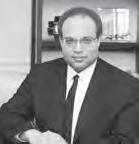


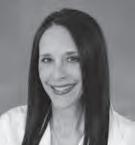


Smith-Rosenthal Team
Jason A. Smith & Caryn Rosenthal
Jason: 412-969-2930 | Caryn: 412-389-1695
Jasonasmith@howardhanna.com Carynrosenthal@howardhanna.com




Sign up on the right hand side of our homepage. pittsburghjewishchronicle.org
Sign up on the right hand side of our homepage. pittsburghjewishchronicle.org
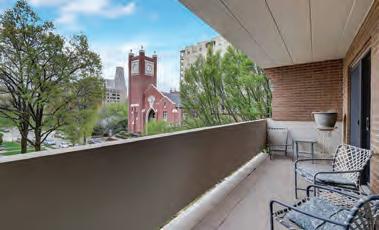





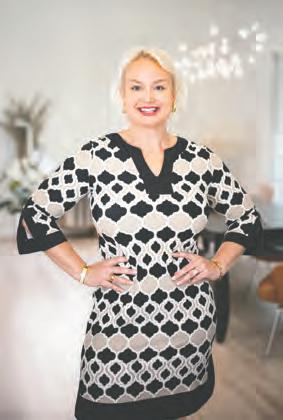



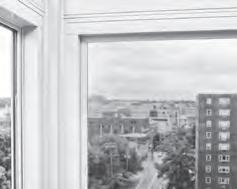
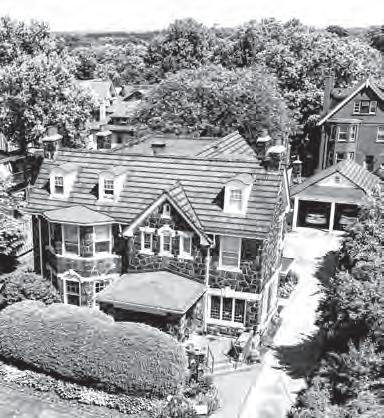




By David Rullo | Senior Staff Writer
Before becoming a broadcaster with the Pittsburgh Steelers, Myron Cope already had a successful career in journalism.
A graduate of Taylor Allderdice High School and the University of Pittsburgh, Cope worked first at the Daily Times in Erie, Pennsylvania, then at the Pittsburgh Post-Gazette, before gaining national attention for his writing in national publications, including the Saturday Evening Post and Sports Illustrated.
His portrayal of then Cassius Clay received the E.P. Dutton Prize for “Best Magazine Sportswriting in the Nation,” and on its 50th anniversary, Sports Illustrated selected Cope’s profile of Howard Cosell as one of the 50 best written works ever published in the magazine.
Despite the accolades, that part of Cope’s career hasn’t garnered the same attention as his work as “the voice of the Pittsburgh Steelers” — which just as easily could have been dubbed “the voice of Pittsburgh.”
Cope’s catchphrases defined the sound of Pittsburgh for a generation of Steelers’
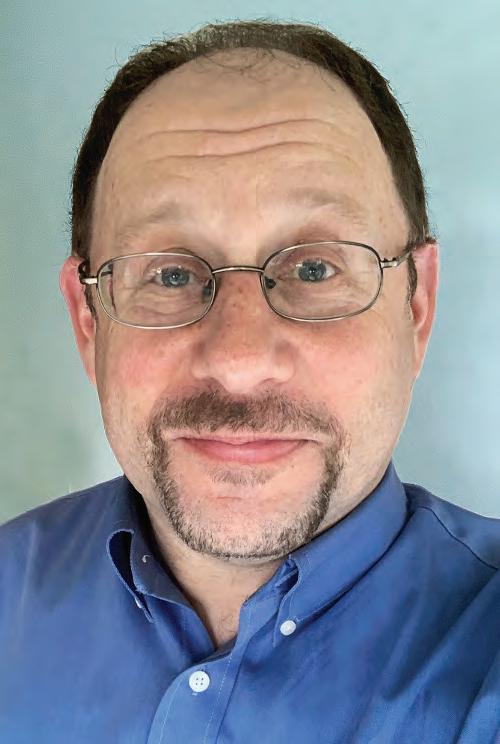
fans and included a plethora of offbeat remarks, some paying homage to his Jewish upbringing. “Mmm-hah” and “okel dokel” were common tags, as were the Yiddishinspired “feh,” “yoi” and “double yoi.”
In his new book, “Beyond the Yoi: The Life of Myron Cope, Legendary
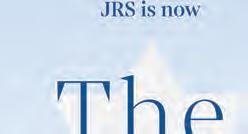
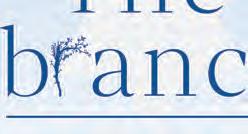


The Shore Whitehill Award, named for Barbara Shore z”l and Robert Whitehill, celebrates those who are dedicated to disability inclusion in the Pittsburgh Jewish community.
Do you know someone who is a champion of inclusion of people of all abilities in the Pittsburgh Jewish community? Do you want to celebrate their contributions? Nominate a champion today!
Complete the nomination form online at: shorewhitehill.org or call 412.325.0039 for assistance.
Nominations due by September 30, 2024.




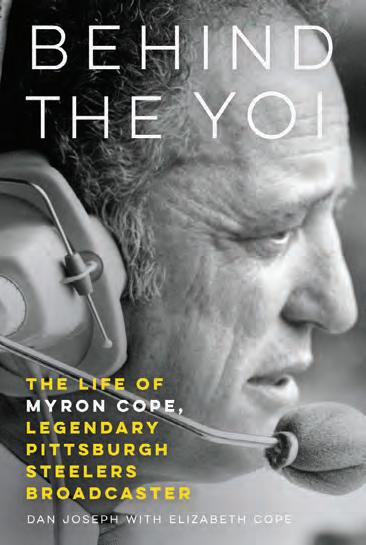
Pittsburgh Steelers Broadcaster,” written with Cope’s daughter Elizabeth Cope, author Dan Joseph attempts to go beyond the vernacular.
“That’s one of the things I really wanted to uncover and examine when I wrote this book, because I thought that had never been appreciated,” Joseph said. “He had a very impressive career before he ever got behind a microphone, and wrote for all of the big magazines.”
Cope, Joseph said, was not only writing for Sports Illustrated and the Saturday Evening Post but also for magazines such as Life and Look, interviewing some of the biggest names in sports including Jim Brown, Arnold Palmer and, of course, Muhammad Ali.
Joseph, in fact, wasn’t necessarily enamored with Cope’s broadcast career. Instead, it was Cope’s writing that caught the author’s attention.
“I was at my high school library reading a book about old-time football players. I really liked the book and happened to glance at the spine and saw it was written by Myron Cope. The book was called ‘The Game That Was,’” Joseph recalled.
Like Cope, Joseph is a Pittsburgh native. He has written three books, two about baseball — “Baseball’s Greatest What If: The Story and Tragedy of Pistol Pete Reiser,” and “Last Ride of the Iron Horse: How Lou Gehrig Fought ALS to Play One Final Championship Season” — and one about terrorism, “Inside Al-Shabaab: The Secret History of Al-Qaeda’s Most Powerful Ally.” He has been an editor in the central newsroom at the Voice of America in Washington for nearly 20 years.
While Cope grew up in Squirrel Hill, Joseph said the broadcaster wasn’t a particularly religiously observant person,
although he became a bar mitzvah at Congregation Beth Shalom.
Cope’s Jewish identity, though, was never up for debate.
“When Jerome Bettis passed some rushing milestone, he didn’t say congratulations, he said ‘Mazel tov,’” Joseph said. “When Joe Gilliam, the Steelers’ first Black quarterback completed a pass to Randy Grossman, the Steelers’ first Jewish tight end, Myron’s commentary on air was, ‘Well, play that soul music and dance the Hava Nagila.’”
Cope’s signature phrase, “Yoi,” Joseph said, was a derivation of “oy.”
The sportscaster’s rise in popularity coincided with the Steelers’ 70s winning streak, Joseph noted.
“It was just perfect timing because the Steelers were beginning to rise towards a great dynasty and Myron was essential in not just making these players colorful and popular, but really bringing them to life for the radio audience,” he said.
An example was the Franco Harris fan club, “Franco’s Italian Army,” which Cope mentioned on air. The same was true of kicker Ray Gerela and “Gerela’s Gorillas.”
“It was a constant back and forth between Myron and the fans,” Joseph said.
That extended to Cope’s perhaps most famous and long-standing connection to the team: The Terrible Towel, whose proceeds go to the Pittsburgh Autism Society and Allegheny Valley School, where Cope’s son — who has a diagnosis of autism — lives.
Joseph said that the idea for the book came when he learned of Elizabeth Cope’s interest in doing something with all of the papers and tapes her father saved, which grew into the Myron Cope channel on YouTube.
He said he focused on Cope’s career while Elizabeth Cope wrote about growing up in the Cope household and her relationship with her father.
“I wrote the bulk of the book, but she wrote several chapters in her own voice,” he said.
Writing a book about a hometown hero, Joseph said, touched a chord from deep in his childhood.
“It’s been hard to put into words,” he said. “I’m really glad I got to dive into this well and tell Myron’s full story to people who only saw the surface and the guy in commercials or on the 6 o’clock news. There’s a lot more and it was rewarding to bring the full story to life.”
“Beyond the Yoi: The Life of Myron Cope, Legendary Pittsburgh Steelers Broadcaster” will be published Sept. 1. PJC
David Rullo can be reached at drullo@ pittsburghjewishchronicle.org.
Bring Them Home
Community members gathered on the corner of Darlington Road and Murray Avenue in Squirrel Hill to demand the release of an estimated 109 hostages. The Aug. 25 gathering marked 324 days since the captives were taken to Gaza.
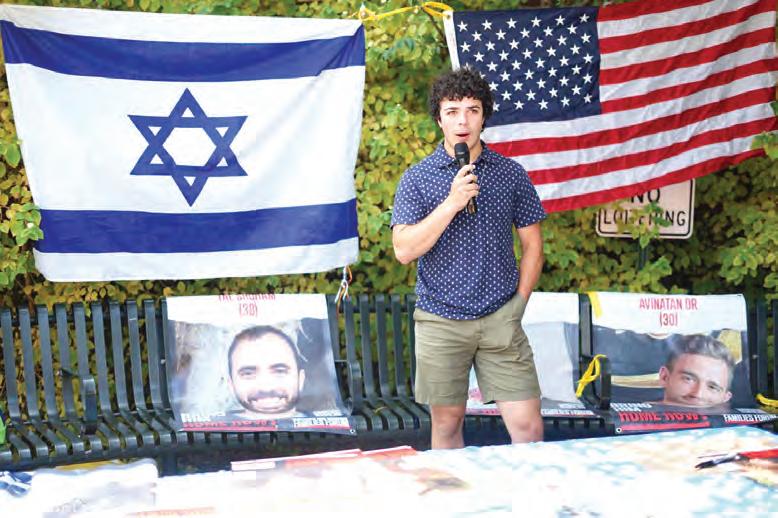
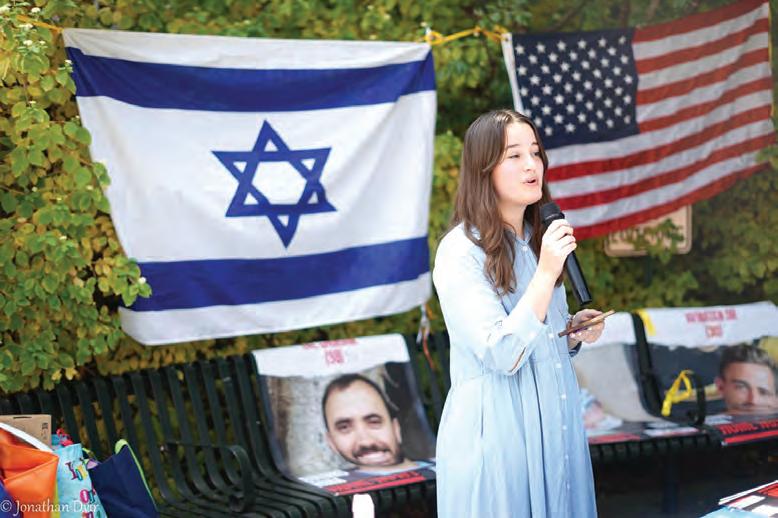
First day fun
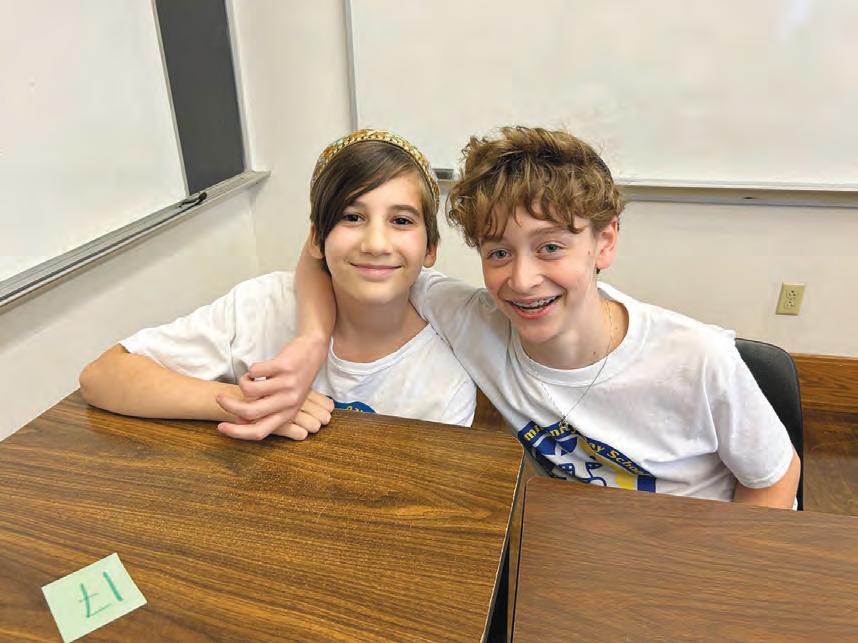
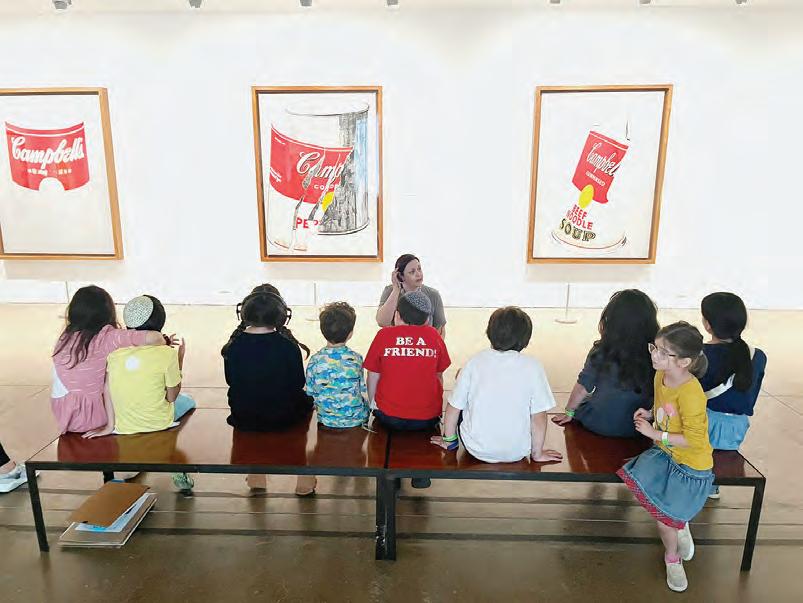

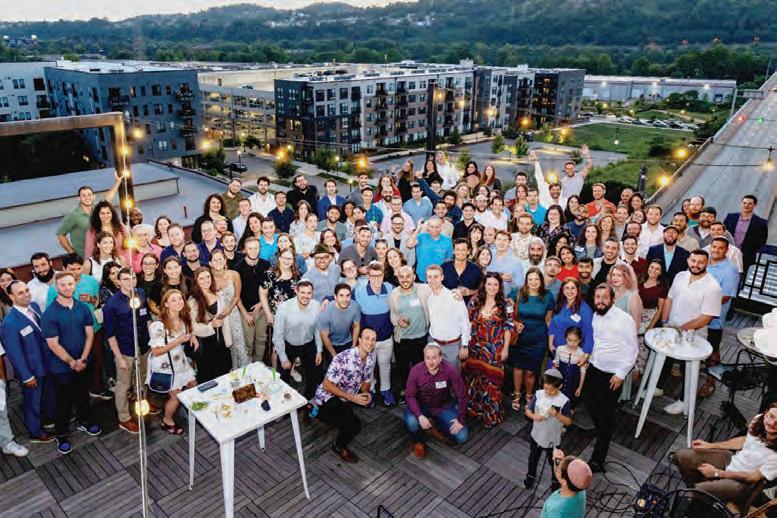
Thursday, September 5 · 10 am-12 pm
JCC Squirrel Hill, Palm Court
Thursday, September 12 · 10 am-12 pm
JCC South Hills, Social Hall
Anyone seeking a second career or volunteer opportunities is encouraged to attend.
A career readiness representative will be on site to answer questions about resumes, interviews, and more. Technology will be available for use in submitting digital applications or volunteer clearance requests. Participants will have the opportunity to connect with
Questions? Contact Hayley Maher at hmaher@jccpgh.org or 412-697-3552. You do not need to register for this event. JCCPGH.ORG